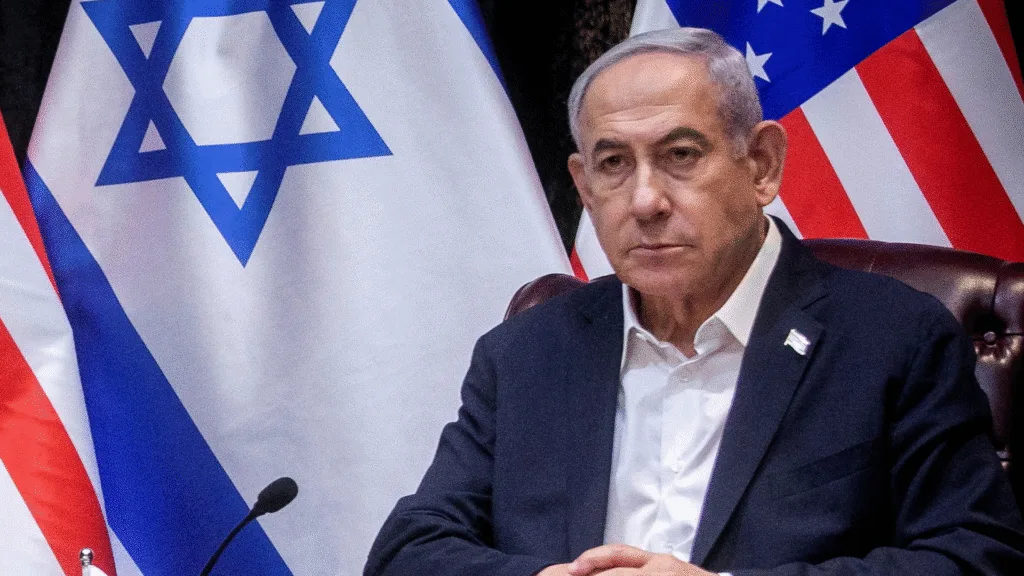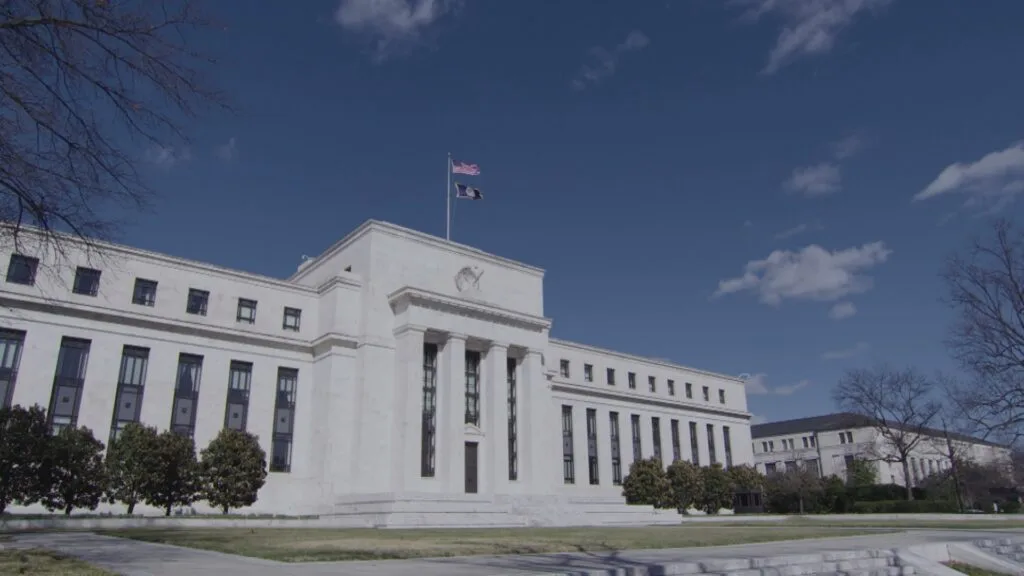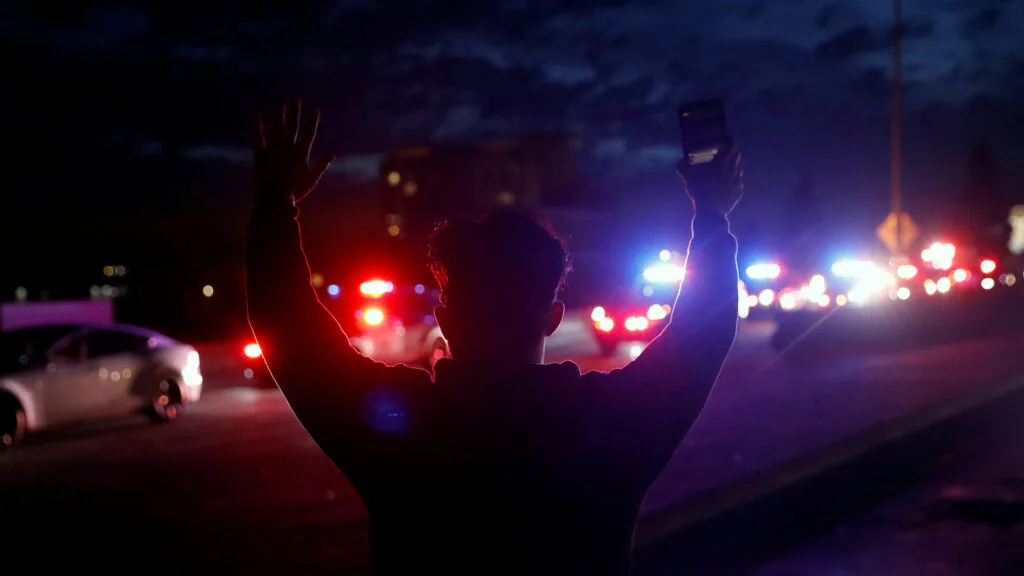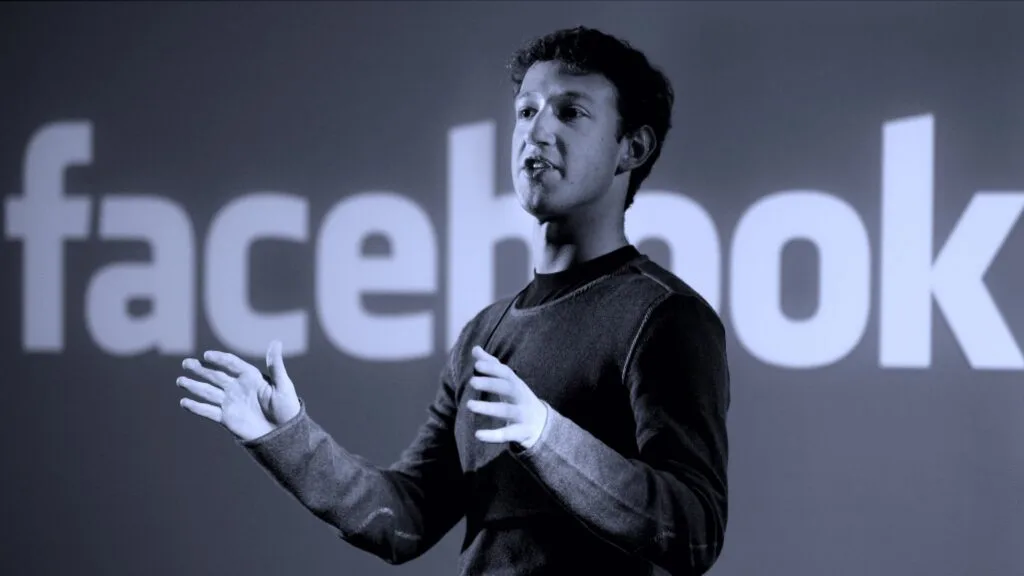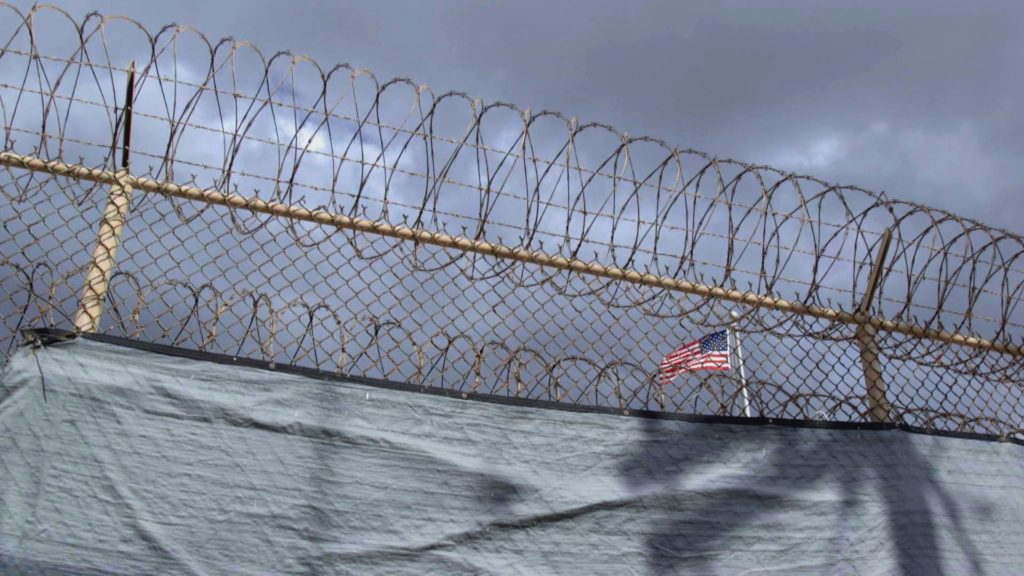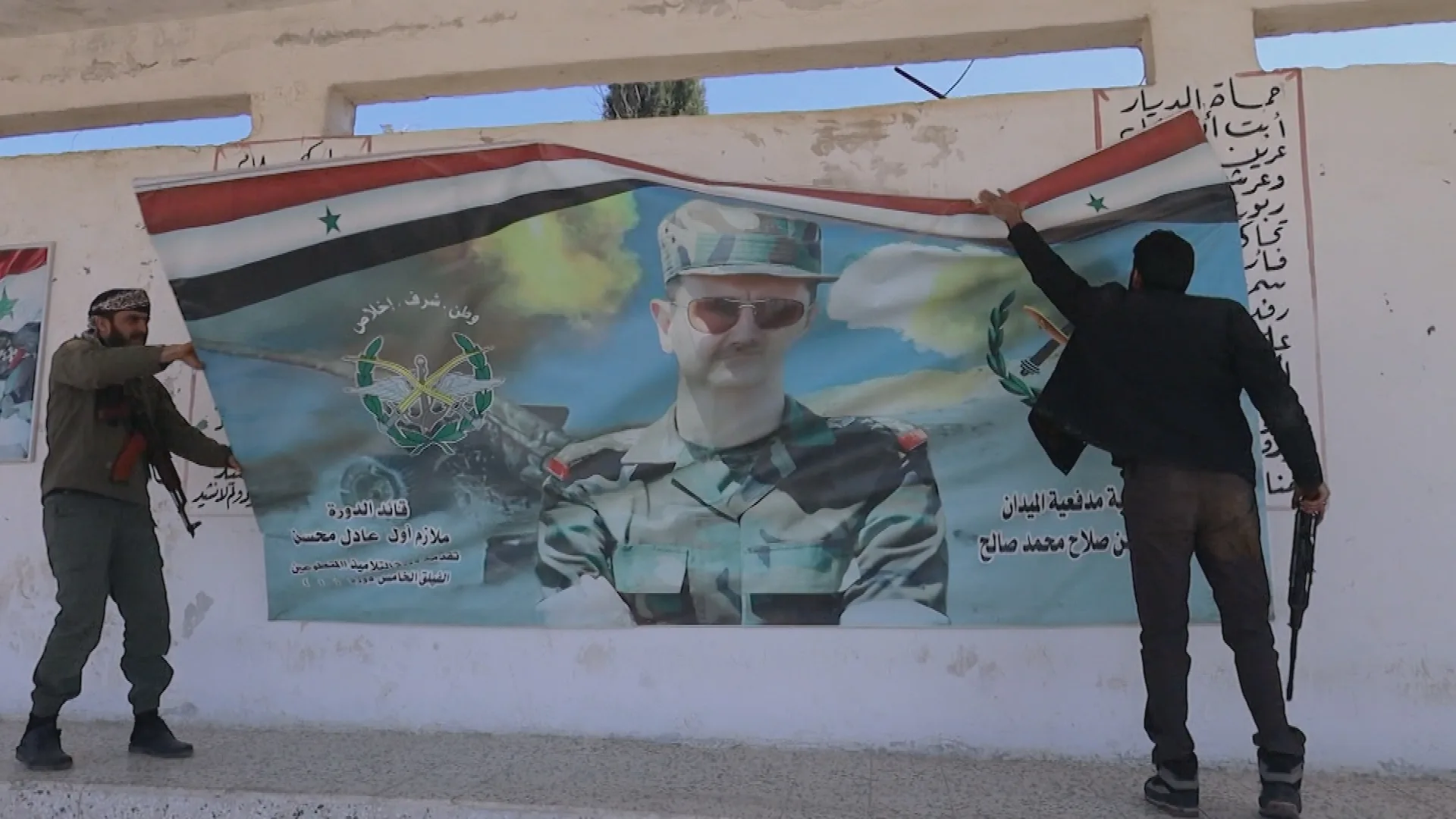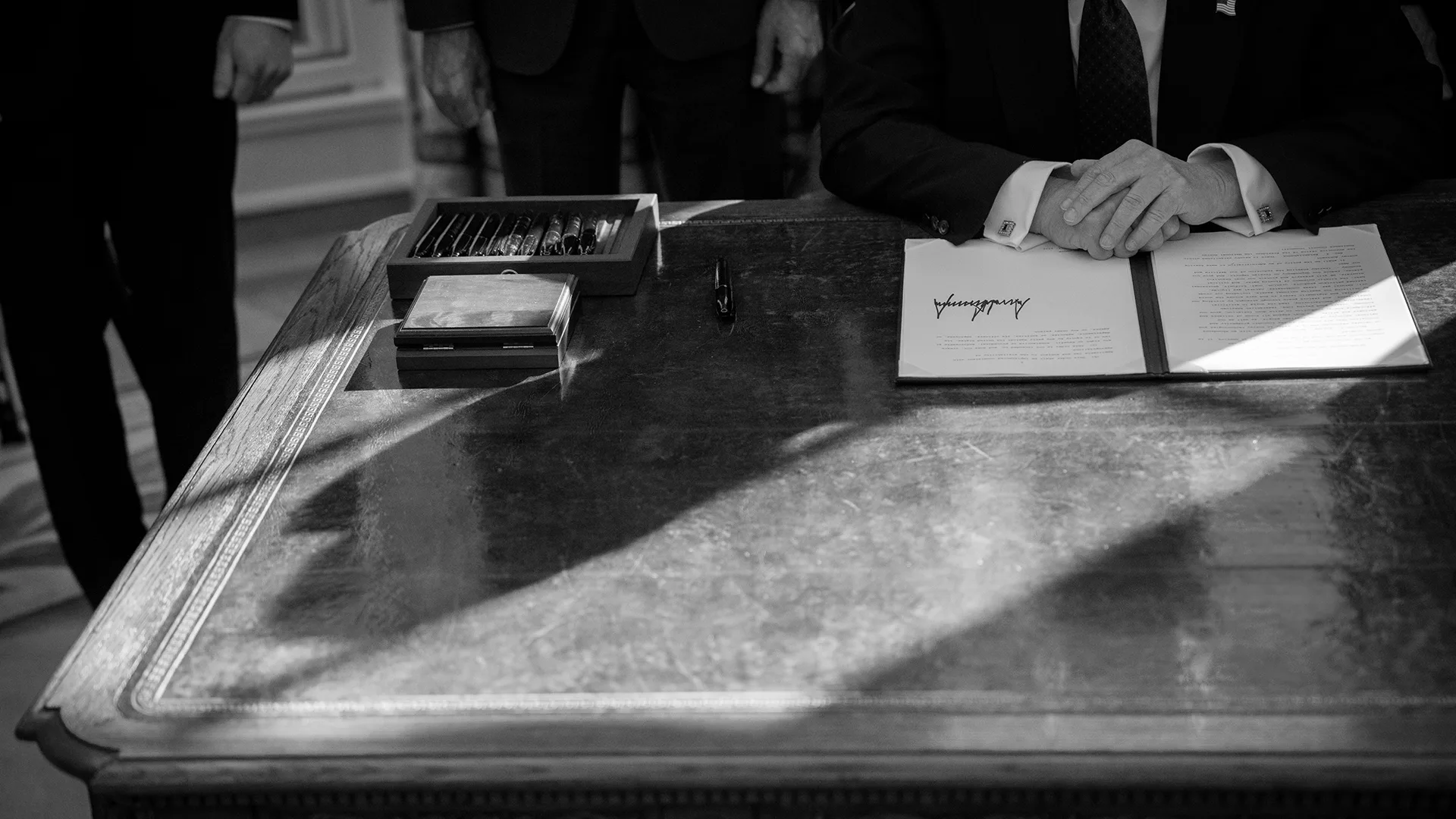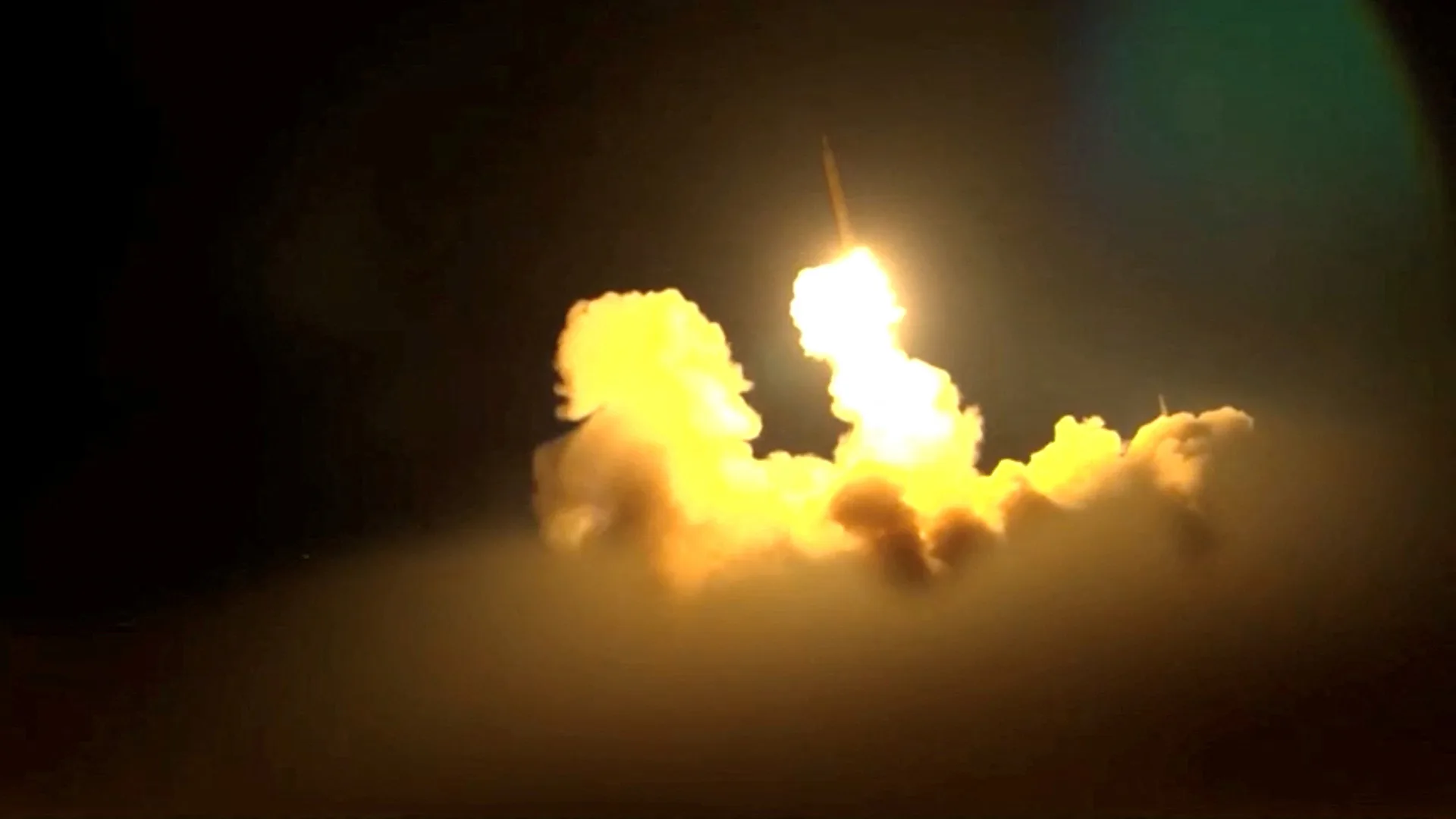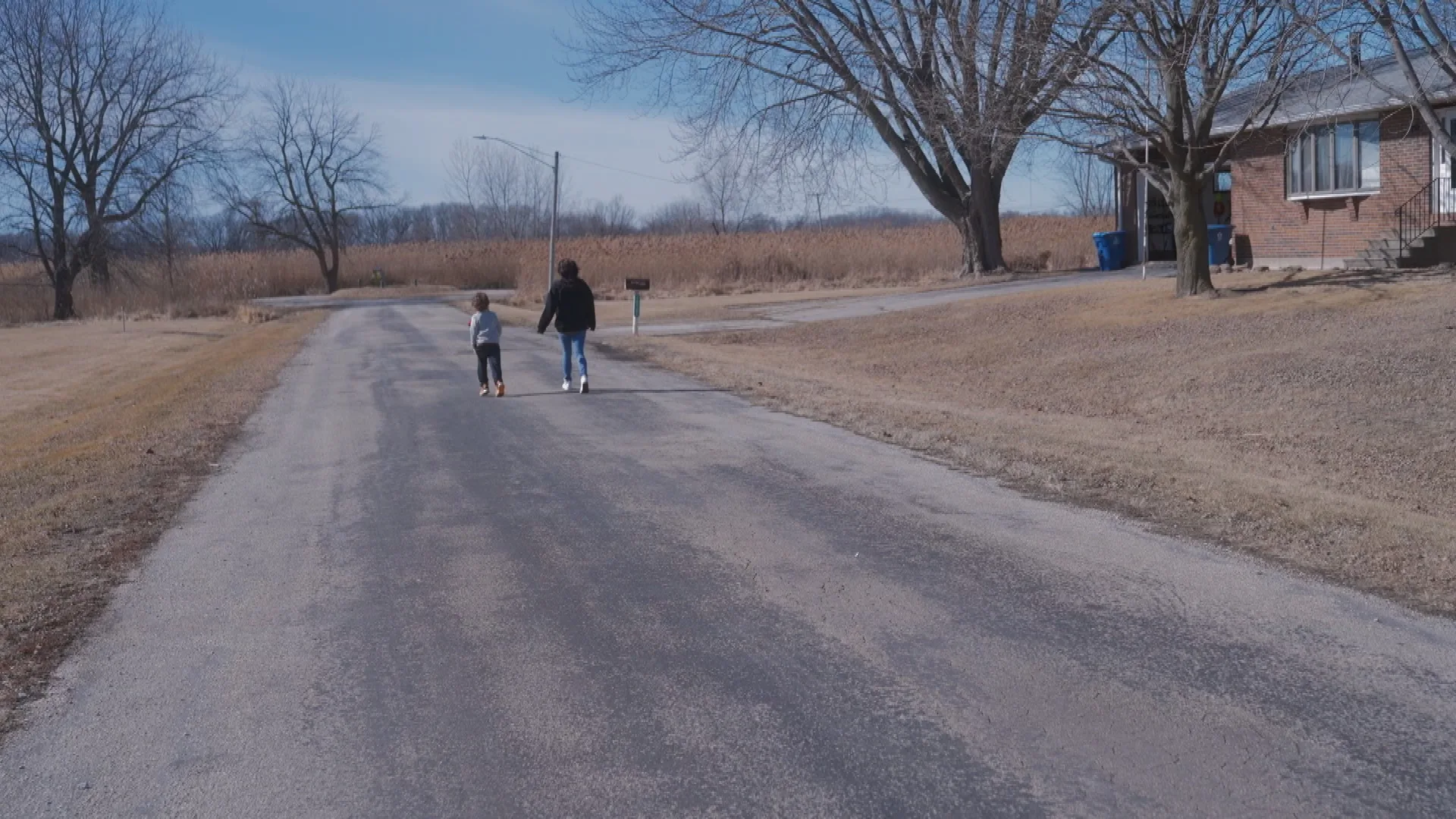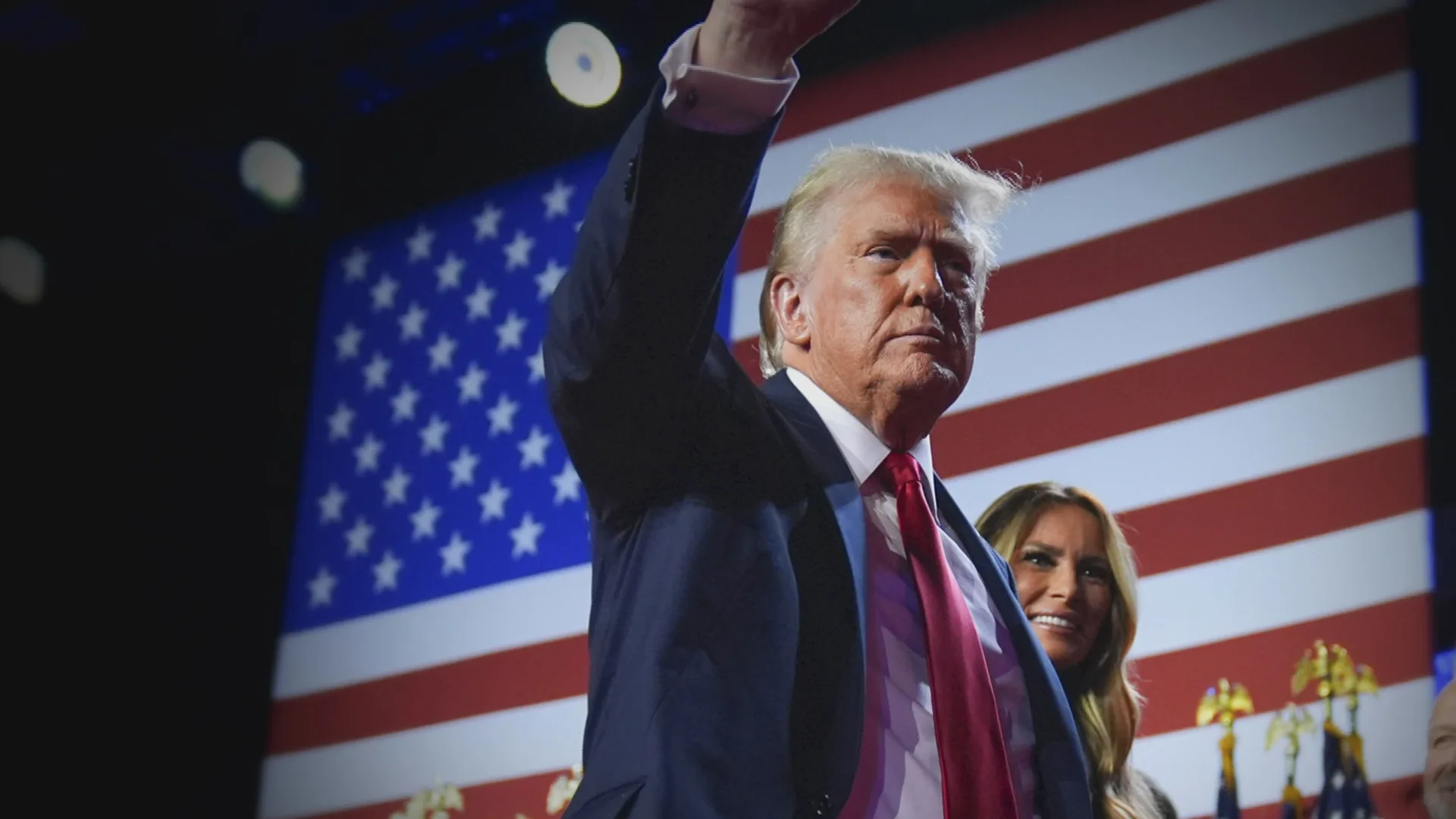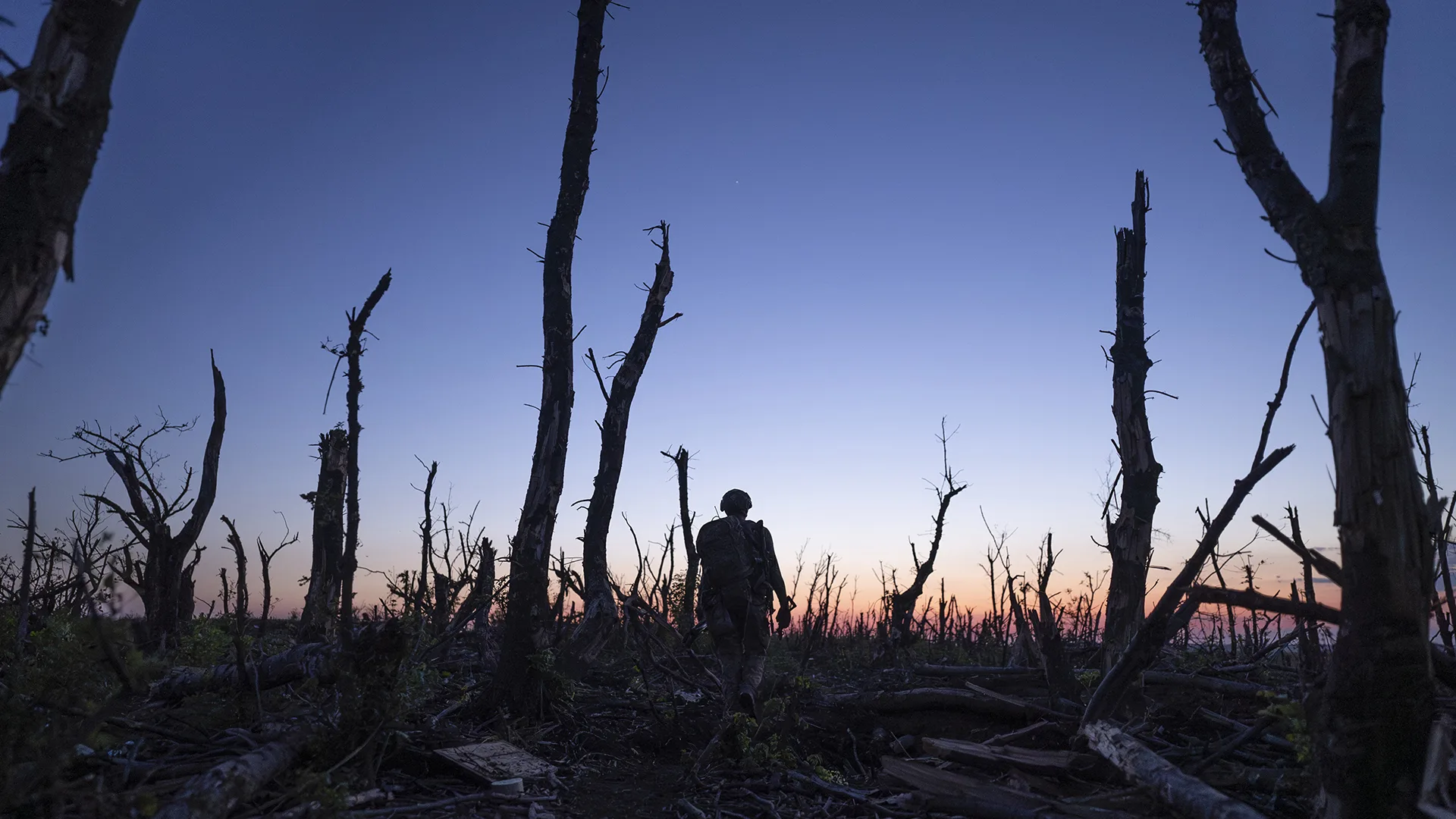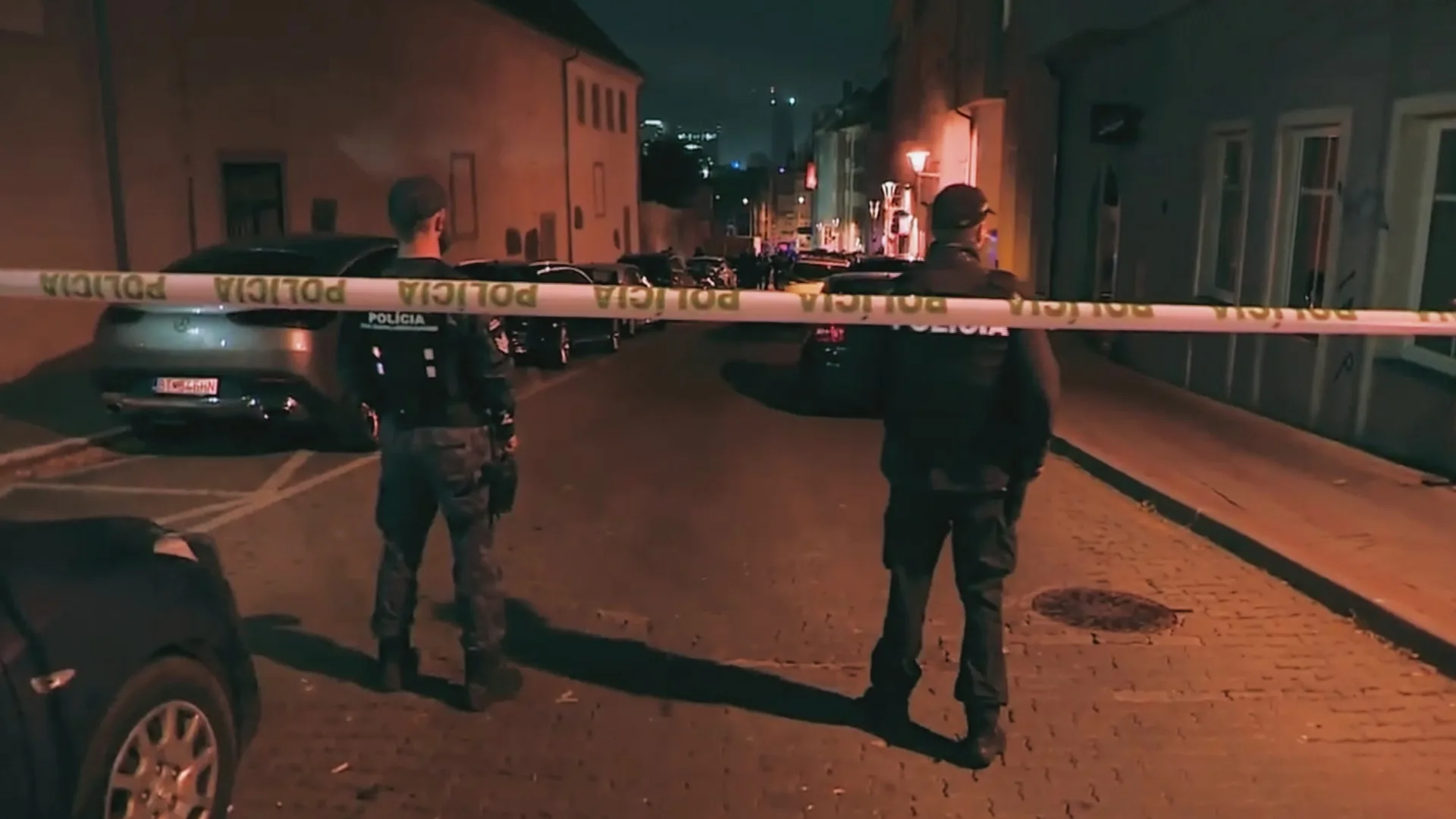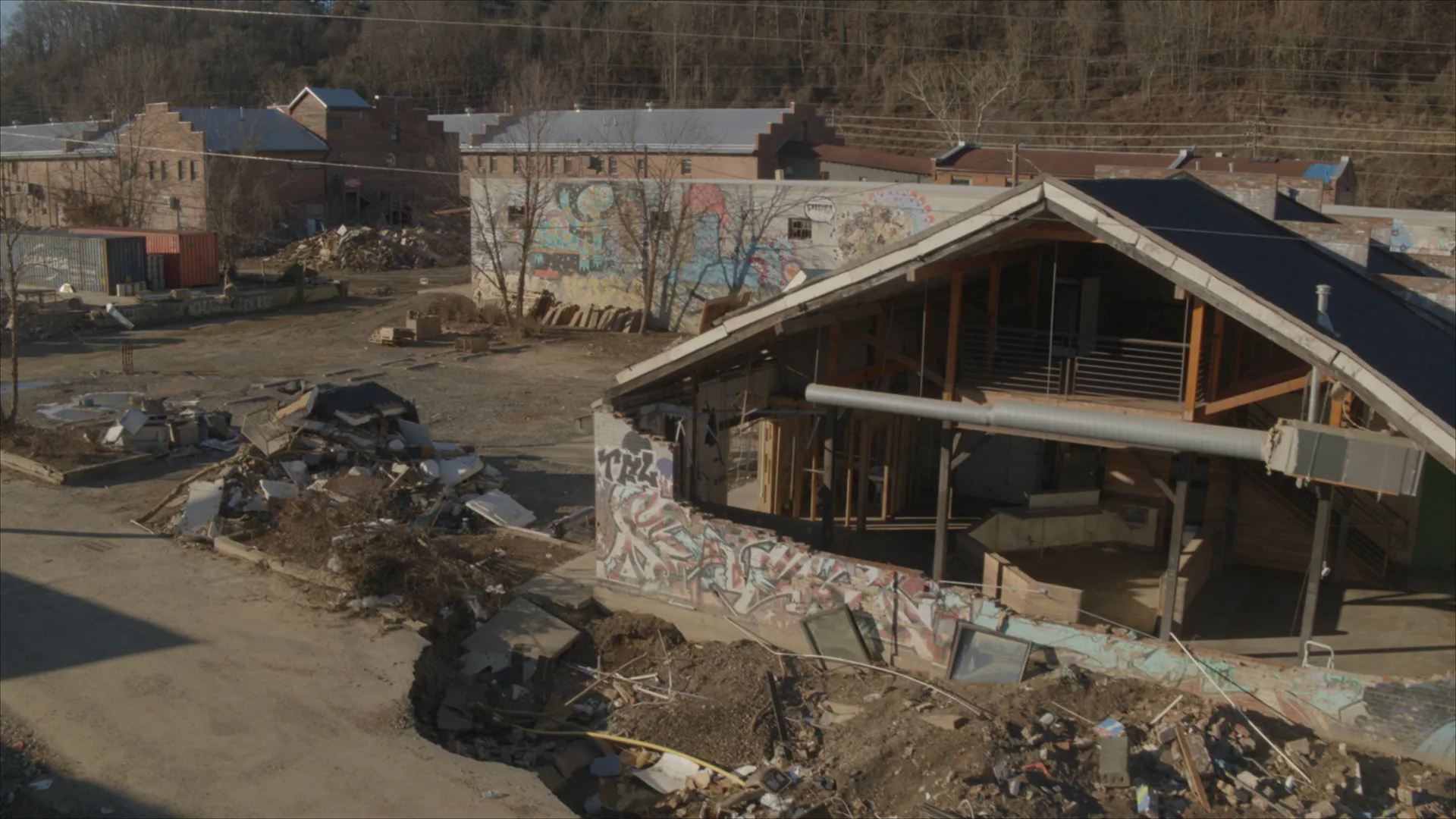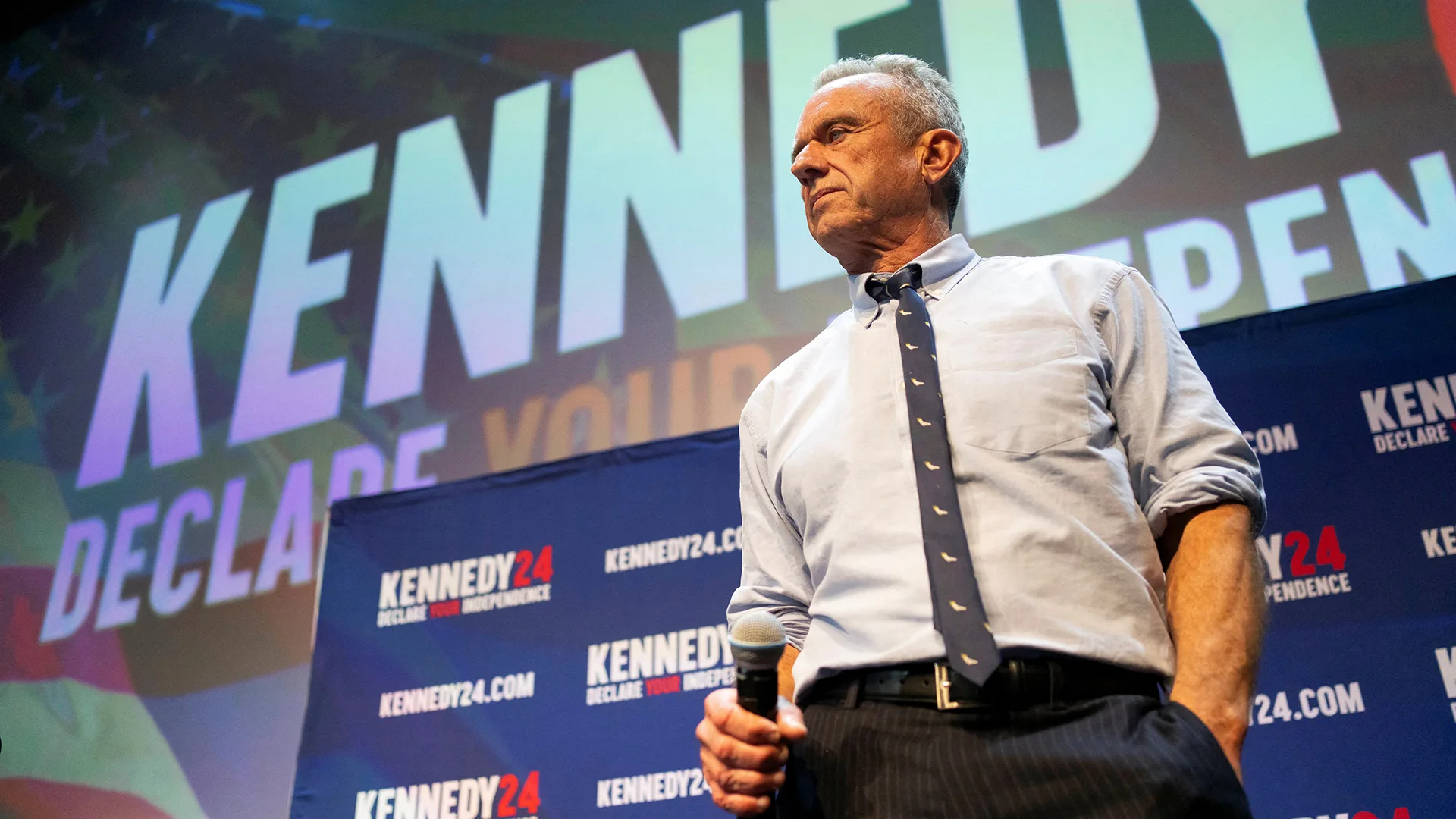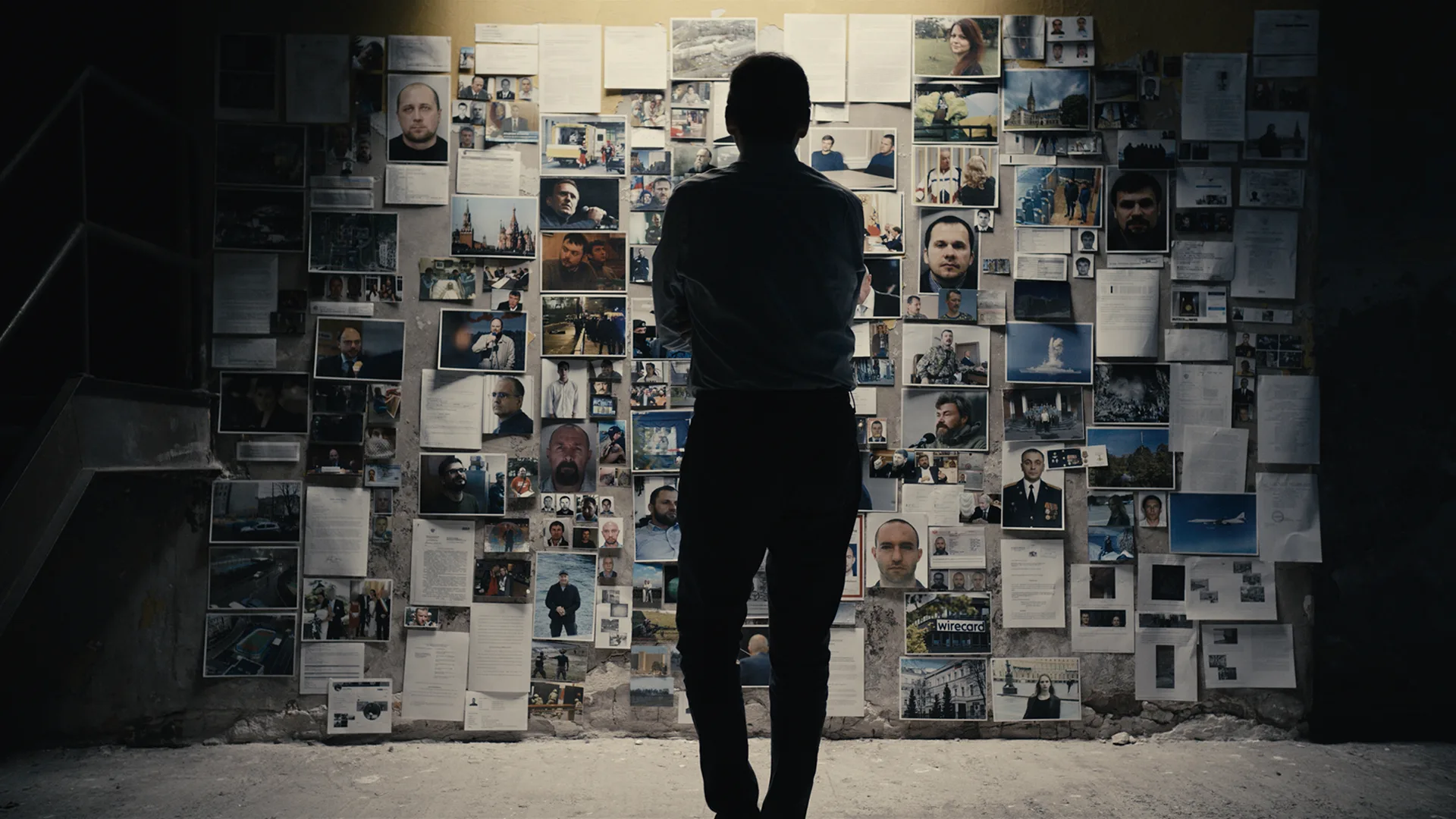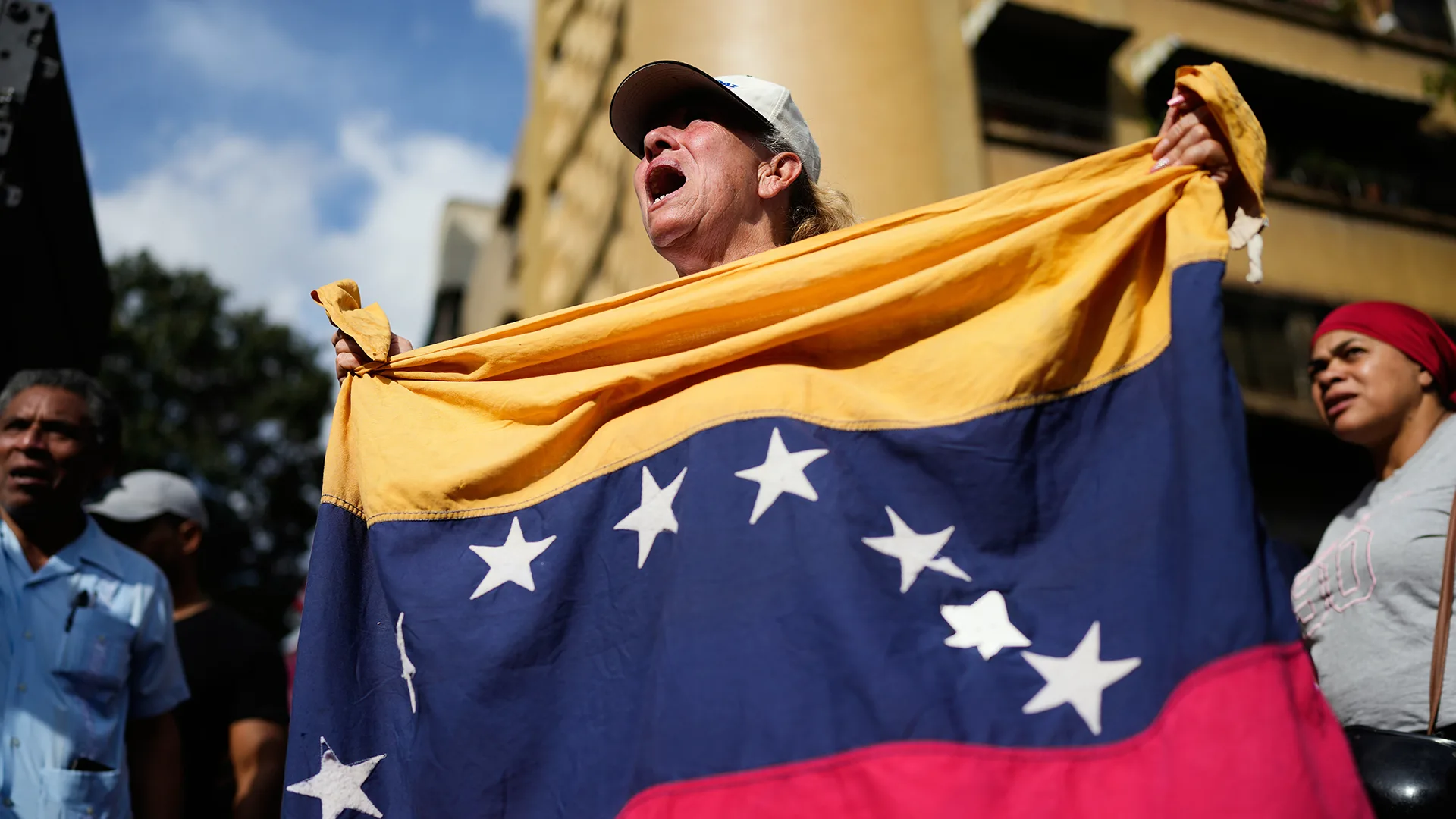Remaking the Middle East: Israel vs. Iran
July 29, 2025
1h 54m
FRONTLINE examines how Israel ended up fighting wars in Gaza and Iran — and the U.S. role
Remaking the Middle East: Israel vs. Iran
July 29, 2025
1h 54m
Share
FRONTLINE examines how Israel ended up fighting wars in Gaza and Iran — and the role of the United States. From filmmakers James Jacoby and Anya Bourg, the documentary traces Israeli Prime Minister Benjamin Netanyahu’s long campaign to defeat Iran, the conflict with the Palestinians, and Netanyahu’s difficult relations with the U.S. over peace and Iran’s nuclear ambitions.
Directed by
Produced by
Written by
Correspondent
Transcript
Credits
Journalistic Standards
Support provided by:
Learn More
More Documentaries by James Jacoby
Most Watched
The FRONTLINE Newsletter
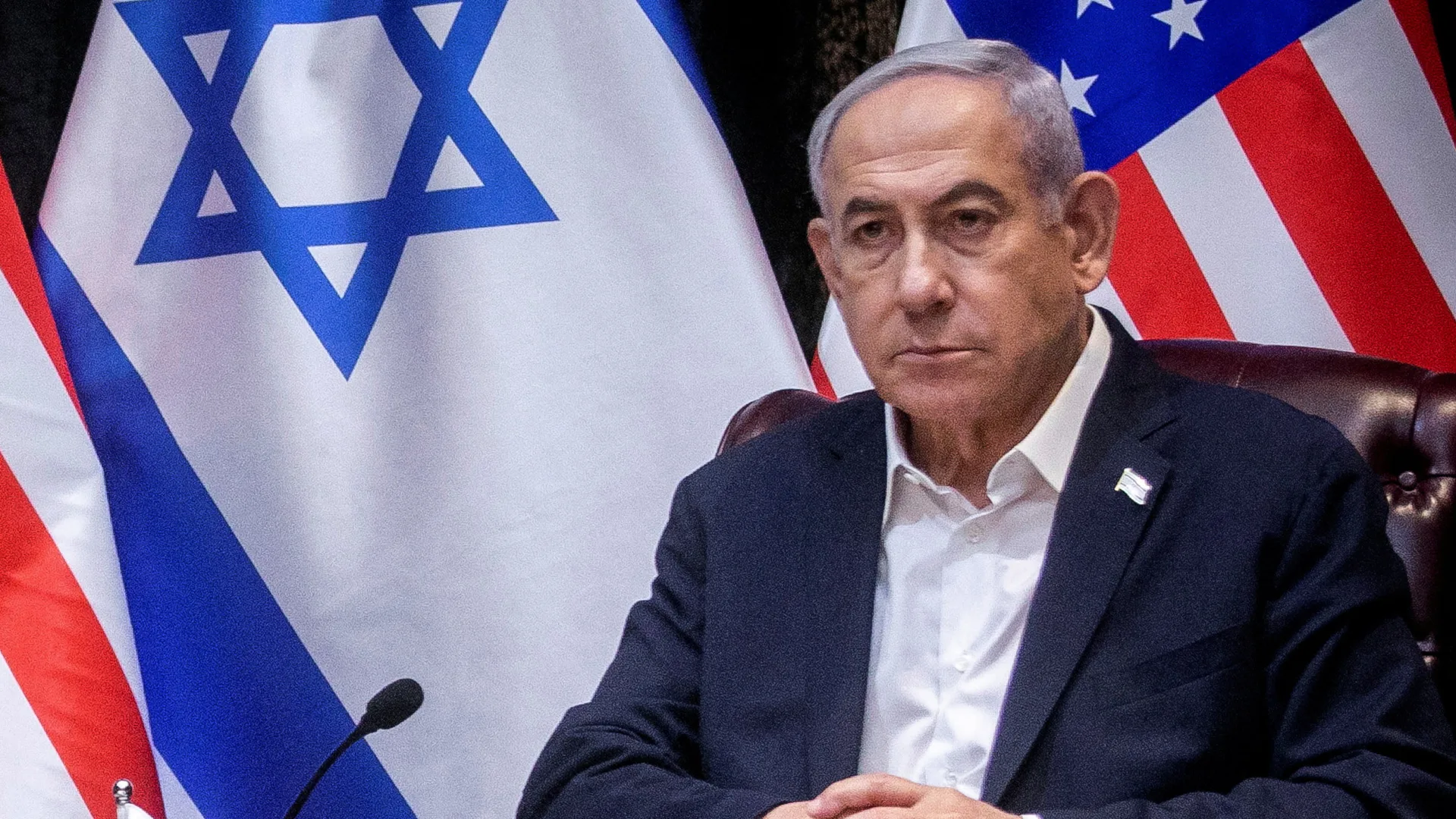
Netanyahu, America & the Road to War in Gaza
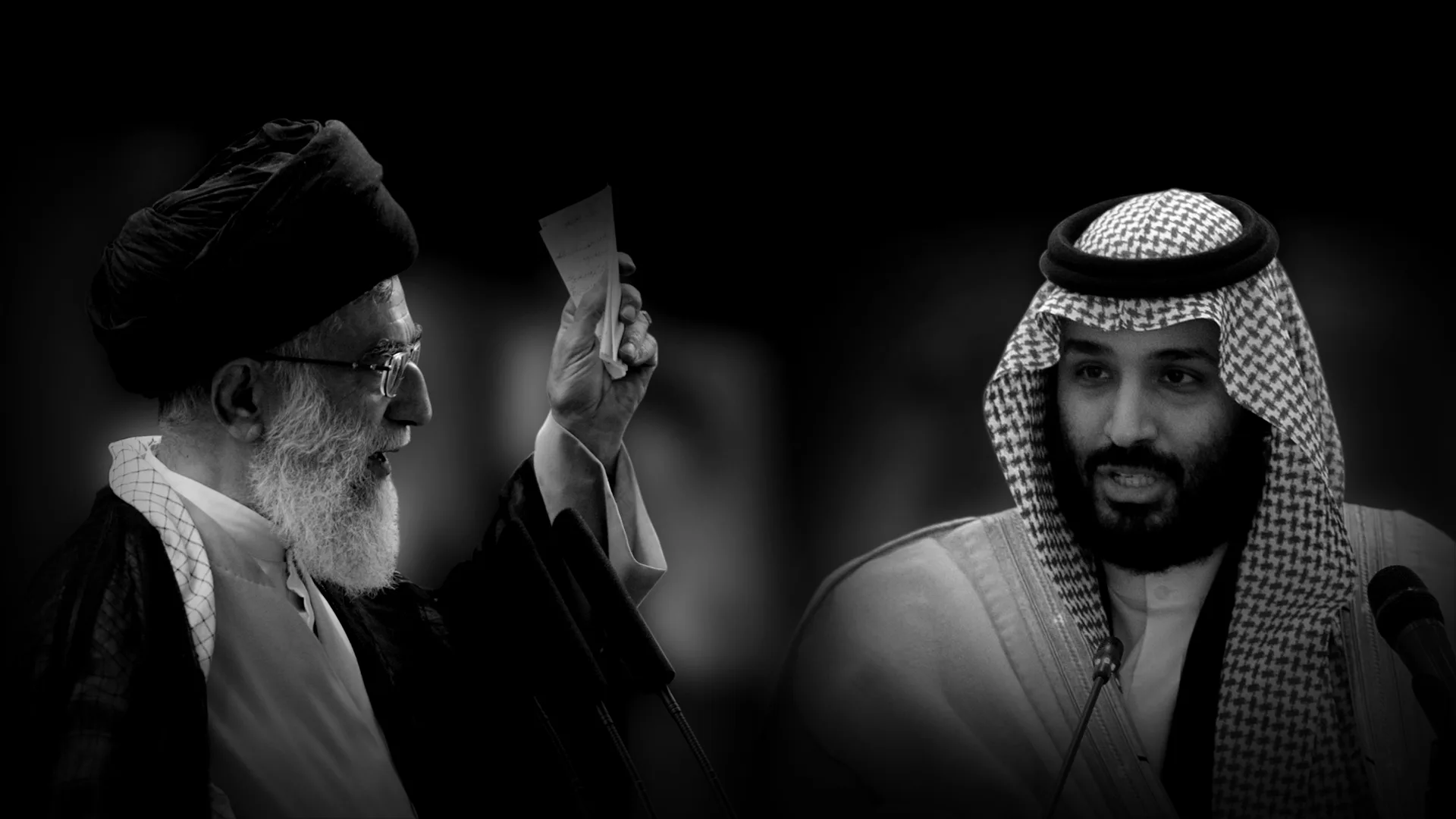
Bitter Rivals
Related Stories
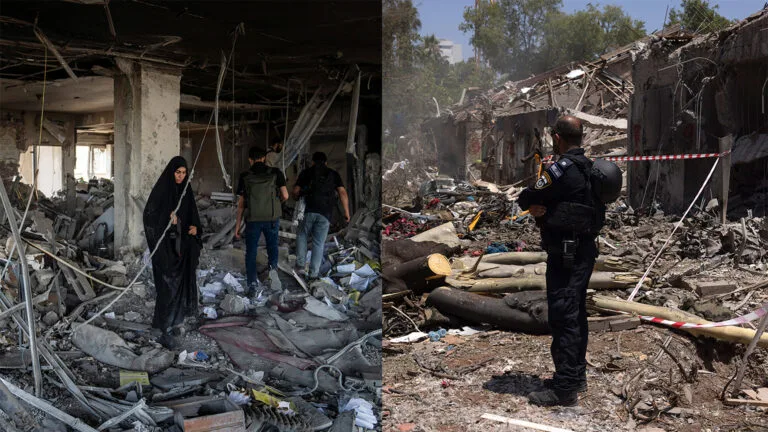
The Iran-Israel Conflict and the U.S. Role: 11 Documentaries to Watch
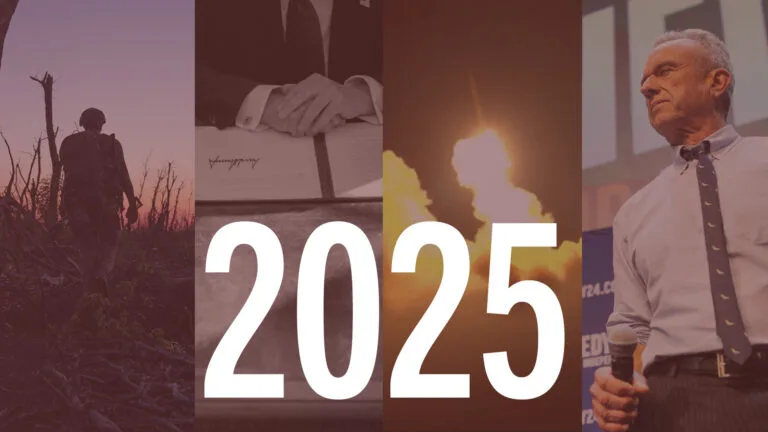
Watch 2025’s 10 Most-Streamed New FRONTLINE Documentaries

Netanyahu, America & the Road to War in Gaza

Bitter Rivals
Related Stories

The Iran-Israel Conflict and the U.S. Role: 11 Documentaries to Watch

Watch 2025’s 10 Most-Streamed New FRONTLINE Documentaries

Netanyahu, America & the Road to War in Gaza

Bitter Rivals
This program contains graphic imagery. Viewer discretion is advised.
BENJAMIN NETANYAHU:
When I last stood here, I spoke of the consequences of Iran developing nuclear weapons. Now, time is running out.
May 24, 2011
BENJAMIN NETANYAHU:
The more Iran believes that all options are on the table, the less the chance of confrontation.
JAMES JACOBY, Correspondent:
The roots of last month’s bombing go back many years, to a long campaign by Israeli Prime Minister Benjamin Netanyahu.
BENJAMIN NETANYAHU:
And this is why I ask you to continue to send an unequivocal message: that America will never permit Iran to develop nuclear weapons.
DAN SHAPIRO, U.S. Ambassador to Israel, 2011-17:
I don’t think I had a single meeting with the prime minister where he didn’t raise his concerns about Iran, and certainly the fact that Iran was pursuing a nuclear program that might enable it to have a nuclear weapon. He was single-mindedly focused on that, and he would never let me forget it, that that was his number one priority.
JAMES JACOBY:
What was often your response to that?
DAN SHAPIRO:
My response was that the United States largely shared that analysis and that understanding of the Iranian regime. The only question was how would we deal with it? How would we deal with the most significant and most dangerous threat that Iran could pose, which is if it ever acquired a nuclear weapon? And how to make sure that didn’t happen.
JAMES JACOBY:
Netanyahu had reason to be concerned. Western intelligence services had recently uncovered a dangerous new phase in Iran’s nuclear ambitions.
MALE NEWSREADER:
Western leaders in Pittsburgh this week were unhappy, but they weren’t surprised.
DAN SHAPIRO:
President Obama and the leaders of France and the United Kingdom revealed what intelligence had shown, was that Iran was building an underground enrichment facility at a place called Fordo.
PRESIDENT BARACK OBAMA:
This is not the first time that Iran has concealed information about its nuclear program.
MICHAEL OREN, Israeli Ambassador to the U.S., 2009-13:
There were a number of clocks ticking. One clock was the rate at which Iran was enriching uranium. Another clock was the rate in which they would complete the enrichment and move underground, at which point it’d be too late.
JAMES JACOBY:
Iran denied it was building a bomb and insisted Fordo was for its civilian nuclear power program.
SEYED HOSSEIN MOUSAVIAN, Iranian nuclear negotiator, 2003-05:
Never Iran was after nuclear bomb.
JAMES JACOBY:
Seyed Mousavian spent years as an Iranian diplomat and nuclear negotiator.
Why would Iran build a nuclear facility in the side of a mountain, 80 meters underground, if it were only for peaceful purposes? Why do that?
SEYED HOSSEIN MOUSAVIAN:
The answer is very, very simple. It is because of the U.S. Because every U.S. president repeatedly said all options are on the table. It means the U.S. may attack Iran. When you threaten a country for military strike, why they should not have their nuclear facilities under the ground? They would be crazy if they would not have done it.
FEMALE NEWSREADER:
Tough new sanctions are designed to slow Iran’s nuclear ambitions. President Obama is expected to sign those penalties into law.
BARACK OBAMA:
I’m pleased to sign into law the toughest sanctions against Iran ever passed by the United States Congress.
JAMES JACOBY:
The Obama administration had already imposed crippling sanctions on Iran, and behind the scenes pursued a series of covert cyberoperations against its nuclear program.
BENJAMIN NETANYAHU:
You know, for them, you’re the Great Satan, we’re the little Satan. For them, we are you, and you are us.
JAMES JACOBY:
But Netanyahu wanted to go further: a military strike.
DAN SHAPIRO:
The prime minister did not believe the Iranian nuclear program could be contained and prevented from producing a nuclear weapon without military action. So for him, it was a matter of when and who and how.
MALE NEWSREADER:
There is strong likelihood Israel will strike Iran in April, May or June.
JAMES JACOBY:
In early 2012, the Israeli military was planning for an attack on Iran’s nuclear sites. But as the possibility of a strike grew, Netanyahu’s own cabinet and intelligence agencies were divided on whether to attack.
ZOHAR PALTI, Fmr. Dir., Mossad Intelligence Directorate:
The issue was whether right now they’re building a bomb and this is the right time to do it.
JAMES JACOBY:
Zohar Palti, head of Mossad’s Intelligence Directorate, was arguing against it.
ZOHAR PALTI:
You’re not coming and starting a war with a huge state like Iran without those discussions, and if somebody’s pushing you as a professional, “I want to do it,” I said, “OK, but you have to understand, right now, at that moment, the Iranian are not building a bomb.”
YAAKOV AMIDROR, Israeli National Security Adviser, 2011-13:
The head of the Mossad was against it. The chief of staff was against it. And around the table from the professionals, I think that I was the only one who thought that this is the right moment and we should do it.
JAMES JACOBY:
Yaakov Amidror was Netanyahu’s national security adviser.
YAAKOV AMIDROR:
We are asking ourselves every morning one question: Will tomorrow be too late? If it is not, you don’t do anything. If it is, the answer is yes, tomorrow will be too late, we have to decide what we do.
JAMES JACOBY:
With his cabinet divided, Netanyahu turned to Obama and asked him for assurance that if Israel did go ahead, the U.S. would back them up.
DAVID SANGER, The New York Times:
What Netanyahu wants is either a green light or a yellow light to go bomb the Iranian program, and the knowledge that if the Iranians retaliated against Israel, Obama would be right with him to get into that conflict. And Obama wasn’t going to give him that.
He couldn’t imagine how you bomb Iran without triggering a general war in the Middle East.
JAMES JACOBY:
In the end, Netanyahu stood down.
The animosity between Iran and Israel goes back almost 50 years, to 1979, when Iranian revolutionaries overthrew a repressive monarchy supported by the U.S. and allied with Israel.
VALI NASR, Author, Iran’s Grand Strategy:
Ayatollah Khomeini, who was the chief ideologue of the Iranian Revolution, had written a lot about Israel in his proclamations, in his writings. He saw Israel as a aggressive outside force which had taken Palestinian territory, exiled Palestinians from their land.
CROWD:
[Chanting in Farsi] Death to Israel! Death to Israel!
JAMES JACOBY:
And was part of this actually enshrined in the revolutionary Iranian stance on Israel?
VALI NASR:
Yes, it was part of the ideology. Eradication of Israel, restoration of land to the Palestinians, was an aspiration of all Arabs, all Muslims at that point in time. And it would be the Islamic Revolution that would fulfill that aspiration.
JAMES JACOBY:
The new Iranian regime was heavily sanctioned by the U.S., which backed Iran’s rivals in the region, like Iraq and Saudi Arabia.
VALI NASR:
Iran is Shia, Iran is Persian-speaking. The Arab world’s consciousness is Sunni, it’s Arabic-speaking. Iran in the region is an absolute loner.
JAMES JACOBY:
Iran would bolster its standing in the region through its support of the Palestinian cause.
VALI NASR:
No other issue gives Iran a role, a say in the Arab world. No other issue speaks to Arab hearts and minds than Iran’s support for the Palestinians.
MALE NEWSREADER:
The devastation in the west of the city is appalling.
JAMES JACOBY:
Initially, Iran backed Yasser Arafat’s Palestine Liberation Organization, the PLO, which was engaged in an armed struggle against Israel from its base in Lebanon.
In 1982, Israel invaded and occupied southern Lebanon to drive out the PLO.
Iran went on to train and fund a Lebanese Shia group to fight against Israel. It would become known as Hezbollah, Arabic for “The Party of God.”
MALE HEZBOLLAH MILITANT:
[Shouting in Arabic] God is great!
MALE NEWSREADER:
One-hundred and twenty Americans killed today.
JAMES JACOBY:
Soon after, a massive suicide bombing at a U.S. Marine barracks in Beirut would be widely attributed to Hezbollah—acting as a proxy for Iran.
VALI NASR:
It left really, really bitter taste in American mouths. It really hardened America’s views on Iran.
PRESIDENT RONALD REAGAN:
These deeds make so evident the bestial nature of those who would assume power if they could have their way and drive us out of that area.
VALI NASR:
But it also taught the Iranians that there was a strategy here, that you could actually extricate the West by using call it terrorism, call it asymmetric behavior, etc.
MALE NEWSREADER:
A huge explosion apparently caused by a bomb shattered the Israeli Embassy in Argentina today.
VALI NASR:
Then Hezbollah units, or those militias Iran was training, started suicide bombing against Israeli targets.
YITZHAK RABIN, Israeli Prime Minister:
We shall look for the people who are responsible for this terrible crime.
JAMES JACOBY:
By the 1990s, Israeli intelligence was growing increasingly concerned that Iran was escalating and trying to develop a nuclear bomb—a red line for Israel, the only nuclear power in the Middle East.
OREN SETTER, Senior Iran expert, IDF, 2003-23:
There’s already very deep animosity between Iran and Israel, and it’s a very ideological animosity from Iran’s perspective. So if we do the one plus one plus one, we understand that there is a nuclear weapon being developed to be put on a missile that is probably destined to end up in Israel.
JAMES JACOBY:
Netanyahu began calling for international action against Iran.
1996
BENJAMIN NETANYAHU:
The most dangerous of these regimes is Iran. If this regime, or its despotic neighbor Iraq, were to acquire nuclear weapons, this could presage catastrophic consequences, not only for my country, and not only for the Middle East, but for all of mankind.
SEYED HOSSEIN MOUSAVIAN:
Prime Minister Netanyahu has been after bombing Iran from early 1990s. He doesn’t care about enrichment or nuclear bomb or even nuclear program. He just want to drag the U.S. in a war with Iran. That’s it.
JAMES JACOBY:
Throughout this time, Iran’s proxy strategy was evolving.
MASKED ISLAMIC MILITANT:
[Speaking Arabic] Today, we are preparing a whole new generation, which will fight the state of Israel in the future.
JAMES JACOBY:
With Arafat and the PLO negotiating the historic Oslo peace accords with Israel, Iran began backing a new, more extreme Palestinian group: Hamas.
MALE NEWSREADER:
The car bomb was aimed at killing the maximum number of Israeli schoolchildren. Militants belonging to the Islamic group Hamas said they carried out the attack.
KHALED ELGINDY, Author, Blind Spot: America and the Palestinians:
When the Oslo agreement is signed, most Palestinians said, “Let’s give this a chance.” But there was that core constituency among Palestinians who said, “The peace process is a sham. It can never succeed. Only armed struggle can liberate Palestine.” And Hamas became the embodiment of that sentiment.
JAMES JACOBY:
Hamas’ founding declaration called for the destruction of Israel, and it violently opposed a two-state solution.
ARASH AZIZI, Author, The Shadow Commander:
In this decade of the 1990s, there’s only one country, and since then, effectively, there has been only one country that continues to arm militias against Israel, that continues to not accept the two-state solution. And that is the Islamic Republic of Iran.
JAMES JACOBY:
In 2003, after the U.S. invasion of Iraq, Iran seized the chance to expand its regional influence even farther.
ARASH AZIZI:
It starts supporting, arming, funding and in fact cultivating militias and political groups in countries around the region, and it defines that as part of what becomes known in the security lingo of Iran as “forward defense.” The idea is that we will fight in Lebanon, we will fight in Syria, we will fight in Palestine so that we don’t have to fight in Iran.
JAMES JACOBY:
In time, this network of militias would become known as the “axis of resistance”: from the Houthis opposing Saudi influence in Yemen to Shia fighters in Iraq.
The Iranian government denies the groups act as proxies, insisting they are independent organizations all fighting against Israel, which to this day it says is an illegitimate state occupying Palestinian land.
MAJID TAKHT-RAVANCHI, Iranian Deputy Foreign Minister:
We have supported the Palestinian people in their struggle to end the occupation in Palestine.
JAMES JACOBY:
Majid Takht-Ravanchi Is Iran’s deputy foreign minister.
Iran has supported, with both training and military support and money, certain regional actors—Hezbollah, Hamas, the Houthis. The Israelis and the Americans describe this strategy as building an axis of resistance. They see it as an offensive strategy.
MAJID TAKHT-RAVANCHI:
I mean, the axis of resistance—you mentioned the axis of resistance. Axis of resistance against whom? Against the occupation. The Israelis and the Americans have been floating this idea that the axis of resistance is against America or against Israel. They do not say the fact that the axis of resistance was in response to occupation, in response to more than 70 years of Israeli occupation of Palestine. If they want to see an end to resistance, they should end the occupation. Pure and simple.
AMOS YADLIN, Fmr. head, Israeli military intelligence:
The Iranian objective, and it was not only propaganda, was to remove the Great Satan, which is the United States, from the Middle East and to wipe Israel off the map. So death to America, death to Israel.
JAMES JACOBY:
Amos Yadlin was head of Israeli military intelligence in the years the proxy network was expanding.
AMOS YADLIN:
And basically, as chief of intelligence, I saw three main efforts. One is the proxy—supporting Hezbollah, supporting the Palestinian terrorists, the Houthis, the Assad regime, the Shia militia in Iraq. Second, ballistic missiles. And then the nuclear.
MALE NEWSREADER:
Now the professor was killed by a remote-controlled bomb.
JAMES JACOBY:
Israel began engaging in a shadow war of its own—
FEMALE NEWSREADER:
Two of Iran’s top nuclear scientists were targeted by hit squads.
JAMES JACOBY:
—against Iran’s nuclear program.
FEMALE NEWSREADER:
Two men on a motorcycle stuck a magnetic bomb to the door, then detonated it as they pulled away.
YAAKOV AMIDROR:
If there is someone who is very important in the process and without him it will be delayed for a while, he will be eliminated.
JAMES JACOBY:
Cyberattacks, assassinations—
YAAKOV AMIDROR:
Cyberattacks, assassinations, blowing some tools inside the system, agents which are going in and putting explosives here and there. It was understood it cannot destroy the—but it can delay it, and when you buy time in the Middle East, you buy everything.
February 12, 2013
BARACK OBAMA:
The leaders of Iran must recognize that now’s the time for a diplomatic solution, because a coalition stands united in demanding that they meet their obligations, and we will do what is necessary to prevent them from getting a nuclear weapon.
JAMES JACOBY:
By 2013, having refused to support an Israeli military strike on Iran the year before, President Obama was now pursuing his own strategy. He wanted to negotiate.
JACOB LEW, White House Chief of Staff, 2012-13:
When we set up the early stages of the negotiations, it was very secret. It was a very small group. I was chief of staff to the president at the time. There were half a dozen people who knew that the conversation was going on.
JAMES JACOBY:
Israel was not included in the talks. It found out through its own intelligence.
MICHAEL OREN:
It was a type of an implosion. We’re confronted with this reality in which our principal ally has negotiated behind our backs for seven months with our worst enemy. [Laughs] Now, that is hard to square.
RONEN BERGMAN, Author, The Secret War with Iran:
And when he learned about this, of course Benjamin Netanyahu was furious. He sees this highly sensitive, secretive intelligence coming from Tehran. The Iranians are happy. The American delegates are making concession after concession. And it leads, I think naturally, to harshen the line against the U.S. government and say, “This is a very bad deal. You are going to make a very bad deal.”
BENJAMIN NETANYAHU:
This is a bad deal. A very, very bad deal. It’s the deal of a century for Iran. It’s a very dangerous and bad deal for peace and the international community.
July 14, 2015
FEMALE NEWSREADER:
President Obama is going to speak today at 7:00 a.m. on the Iranian deal. We will be—
BARACK OBAMA:
Today, after two years of negotiations, the United States, together with our international partners, has achieved something that decades of animosity has not: a comprehensive long-term deal with Iran that will prevent it from obtaining a nuclear weapon.
JAMES JACOBY:
In the summer of 2015, the Joint Comprehensive Plan of Action—JCPOA for short—was signed by the U.S., Iran and five other countries, over Israel’s furious objections.
BENJAMIN NETANYAHU:
What a stunning, historic mistake.
JAMES JACOBY:
It restricted Iran’s nuclear activities in exchange for lifting economic sanctions and put in place intensive monitoring by international inspectors.
DAVID SANGER:
The objective of the agreement inside the Obama White House was to make sure that the Iranians always were at least a year away from being able to produce a weapon, on the theory that if they ran for it, we’d see them and there would be political time to react.
BARACK OBAMA:
It cuts off all of Iran’s pathways to a bomb.
DAVID SANGER:
There were problems with this agreement. The provisions expired too early—the Iranians demanded that they get dwindled down over time. By 2025, as we speak today, they were supposed to be allowed to produce more and more uranium. By 2030, the agreement would end.
JACOB LEW:
At some point, the question is if you want to stop something as significant as Iran getting a nuclear weapon, is that a worthy objective? Are you better off with no deal or the best deal you can get? We thought, and I continue to believe, that the best deal you can get was something that left the United States, Israel and the world safer.
JAMES JACOBY:
To those who would say that a deal was better than no deal, how do you respond to that?
ZOHAR PALTI:
Always deal is better than a war, but it should be a good deal. That wasn’t a good deal.
JAMES JACOBY:
The Israelis were upset that the deal also gave Iran access to billions of dollars by unfreezing its bank accounts and allowing it to sell oil—money they said would embolden the regime and its proxies.
MAJID TAKHT-RAVANCHI:
The notion that Iran got the money as a result of sanctions relief and has spent on certain groups or certain parties in the Middle East, that is far from the truth. In fact, we spent lots of money that we received from the sanctions relief on our economy. JCPOA was welcome not only in Iran, but by the whole international community as a success story of diplomacy.
JAMES JACOBY:
In spite of Iran’s denials, the so-called axis of resistance grew in the wake of the deal.
GEN. QASSEM SOLEIMANI:
[Speaking Farsi] The countries under the control of America, America’s allies, have surrendered everything to America.
JAMES JACOBY:
At the center of the axis was Iran’s most powerful military strategist, Gen. Qassem Soleimani.
ARASH AZIZI:
Qassem Soleimani was a truly irreplaceable guy. He did something that is actually rare in modern history. He was able to build a multinational army of tens of thousands of people—of Afghans, of Syrians, of Iraqis, of Palestinians—who would all fight under the command of Iran. This is not something that you learn in military school. It’s not something that you learn from a book. It was something that Soleimani had been able to bring about through years of experience.
JAMES JACOBY:
The most formidable force of all was Hezbollah in Lebanon. It came to be considered the best-armed non-state actor in the world.
OREN SETTER:
Militarily speaking, Hezbollah is a bigger threat. It has a lot more fighters, more advanced capabilities than other proxies. But it is more, I’d say, controlled by Iran and also more deterred by Israel.
Hamas is a different kind of proxy. Hamas is more independent. It’s a Palestinian resistance organization and terroristic means, but it has its own ethos and is more independent in its decisions. It is accepting funding and training and equipment from Iran because Iran is willing to support it, but they have their own motivations and their own decision-making.
MALE NEWSREADER:
Palestinians will vote for a new parliament, and the results could have a major impact on relations with Israel and matters of war and peace.
JAMES JACOBY:
By now Hamas was a political force as well as a military one.
MALE NEWSREADER:
This sweeping victory by Hamas is being described as a political earthquake, already—
JAMES JACOBY:
In 2006, it had swept national elections and then seized control of Gaza in a civil war.
HUSAM ZOMLOT, Head of Palestinian mission to the U.K.:
Hamas has done a lot of damage to our prospects, including the coup d’etat they done in Gaza, and that really undermined Palestinian national unity and Palestinian international standing, of course.
FEMALE NEWSREADER:
Hamas gunmen seized control of the rival Fatah government and security offices.
JAMES JACOBY:
The Palestinian Authority, heir to Arafat’s PLO and longtime participants in the peace process with Israel, retreated to the West Bank.
PETER BAKER, The New York Times:
Gaza becomes a fortress for an organization whose founding charter talks about killing Jews and eliminating Israel. And they are now not just a terrorist organization in Gaza, but the governing organization in Gaza. And that means that the Israelis have to figure out how to deal with them.
MALE NEWSREADER:
The Erez crossing point between Gaza and Israel is now barred to almost all Palestinians.
JAMES JACOBY:
The Israeli government imposed a blockade on Gaza. It said it was trying to stop Hamas from bringing in weapons and prevent its fighters from crossing into Israel.
MALE NEWSREADER:
The civilian population are facing increasing desperation and misery.
JAMES JACOBY:
But it also trapped the population.
MALE NEWSREADER:
Israel says that Gazans will not starve on a more basic diet.
KHALED ELGINDY:
The notion that you could keep 2 million people locked up indefinitely with no real economy, who are entirely dependent on Israel opening and closing the border to allow movement of goods and people in, where the majority of the people are now impoverished, I think was not only absurd but also quite cruel.
JAMES JACOBY:
Hamas, with support from Iran, fired rockets and mortars into Israel. Israel launched airstrikes on Gaza.
BENJAMIN NETANYAHU:
I don’t suggest that the number of casualties be the determinant of what is proportionate and who’s in the right.
JAMES JACOBY:
Benjamin Netanyahu used the violence to amplify his longstanding concerns about prospects for a Palestinian state.
DAVID REMNICK, Editor, The New Yorker:
Netanyahu believes that if you have a Palestinian state in anywhere approximating the ’67 borders, the potential for peace is zero; that the capacity for Israel to maintain its security, even in the state it’s in now, will be radically diminished; that Hezbollah to its north will be stronger; the problem of Gaza will not be in any way remotely solved. Syria, Iran—shall I go on?
MALE NEWSREADER:
Rockets are still being fired into southern Israel.
JAMES JACOBY:
But Netanyahu also thought the threats on Israel’s borders could be contained without engaging in all-out wars.
MALE NEWSREADER:
A whole building demolished. A member of Hamas lived there but had left the day before with his family.
JAMES JACOBY:
For years, most notably in Gaza, he would pursue a fateful strategy known as “mowing the grass.”
AMOS YADLIN:
So the idea was from time to time there will be a round of hostilities. Hamas will be beaten hard. This will establish deterrence. Let’s keep them on a very low level of capabilities.
KHALED ELGINDY:
This notion that every so often there would need to be predictable rounds of violence, “mowing the grass,” as Israelis call it, only to result in reinstating the status quo that existed before the violence, was an untenable situation.
YAAKOV AMIDROR:
The philosophy was that Israel doesn’t want to go to a big war. Most of the decision-makers in Israel, with uniform and without uniform, thought that to go to war is a mistake. I thought that the mistake is not to initiate the war. And that was the biggest mistake. We allowed Hamas and Hezbollah to be very strong organizations. After the 7th of October, it was understood by the establishment in Israel that we made a huge mistake allowing the beasts to grow close to Israel.
DONALD TRUMP:
Thank you.
JAMES JACOBY:
The volatile dynamic in the region would begin to shift with the rise of a new American president.
DONALD TRUMP:
I speak to you today as a lifelong supporter and true friend of Israel. … My number one priority is to dismantle the disastrous deal with Iran.
MALE NEWSREADER:
Israeli Prime Minister Benjamin Netanyahu will meet with President Trump today.
JAMES JACOBY:
That was welcome news to Benjamin Netanyahu, who was one of the first world leaders to meet with Trump at the White House.
FEMALE NEWSREADER:
Mr. Netanyahu says he’s looking forward to a stronger alliance between the U.S. and Israel.
JAMES JACOBY:
Netanyahu arrived with a plan to create a unified front against Iran—a vision for a new Middle East where Israel made peace deals with its Arab neighbors.
JASON GREENBLATT, Special Envoy to the Middle East, 2017-19:
Netanyahu felt very strongly that that’s something we should pursue.
BENJAMIN NETANYAHU:
We can seize an historic opportunity.
JASON GREENBLATT:
And I would say pushed it pretty hard.
BENJAMIN NETANYAHU:
And I believe that under your leadership, this change in our region creates an unprecedented opportunity to strengthen security and advance peace.
JAMES JACOBY:
It was a radical idea that challenged decades of conventional wisdom about the Middle East.
JASON GREENBLATT:
The dogma was basically there’ll be no peace between Israel and its Arab neighbors unless and until you solve the Israeli-Palestinian conflict.
BENJAMIN NETANYAHU:
And I believe that the great opportunity for peace comes from a regional approach, from involving our newfound Arab partners.
JAMES JACOBY:
Trump liked the idea and on his first trip overseas courted Iran’s rivals in the Gulf.
DONALD TRUMP:
Until the Iranian regime is willing to be a partner for peace, all nations of conscience must work together to isolate Iran, deny it. Funding for terrorism—cannot do it. And pray for the day when the Iranian people have the just and righteous government they so richly deserve.
JAMES JACOBY:
He had a receptive audience.
BRIAN HOOK, U.S. Special Rep. for Iran, 2018-20:
We focused on the Iranian threat, which our Gulf partners felt very acutely. They had viewed the Iran nuclear deal as a betrayal. And the president comes in and says we’re going to stand up to Iran together. We’re going to counter Iran together. We’re going to get out of the Iran nuclear deal. And this is what our Arab partners and Israel were waiting to hear after eight years of the Obama administration.
MALE NEWSREADER:
President Trump is reviewing whether the U.S. should stay in the Iran nuclear deal or cancel it.
JAMES JACOBY:
President Trump’s efforts to get out of the deal would get a boost from an Israeli intelligence operation inside Iran.
OREN SETTER:
It was about two years in the making, by the Mossad, until the night of Jan. 31, 2018.
DAVID SANGER:
This heist was like the most brilliant movie-worthy operation. There’s this warehouse in a nondescript part of Tehran. The Israelis figure out that it houses the entire nuclear archive and they do a raid on it. They shipped this stuff out when they figured the Iranians wouldn’t be looking. Then they begin poring through it.
OREN SETTER:
I was leading the team that analyzed the findings of the nuclear archives once it arrived, providing us with a comprehensive understanding of Iran’s past nuclear weapons activities.
BENJAMIN NETANYAHU:
Iran lied. Big time.
JAMES JACOBY:
Netanyahu seized on it.
BENJAMIN NETANYAHU:
This is where they kept the atomic archives. Right here. … Now, from the outside, this was an innocent-looking compound. It looks like a dilapidated warehouse. But from the inside, it contained Iran’s secret atomic archives locked in massive files.
OREN SETTER:
The idea behind the press conference was that we have this amazingly important information to tell the world about Iran.
BENJAMIN NETANYAHU:
Fifty-five thousand pages. Another 55,000 files.
DAVID SANGER:
What was the bottom line? Prior to 2003, there was an active bomb project. After 2003, not so much.
BENJAMIN NETANYAHU:
Incriminating blueprints.
DAVID SANGER:
It left you with very little doubt that the Iranians were trying to deceive the inspectors about past nuclear activity. But that didn’t tell you very much about the present day.
BENJAMIN NETANYAHU:
Again, you don’t have to read Farsi to understand this. This is U-235—that’s enriched uranium.
DAVID SANGER:
Netanyahu spun this very skillfully to say to the inspectors, “The Iranians are pulling your chain.”
JAMES JACOBY:
Was there any evidence in this trove of documents that the Israelis obtained in Tehran that the Iranians were out of compliance with the nuclear deal that Obama had struck with them?
BRIAN HOOK:
Well, Iran was in technical compliance with the deal. But if the Iranian regime was serious about its nuclear program being peaceful, then what are they doing keeping a warehouse full of tens of thousands of pages on how to build a nuclear weapon and not disclosing it to the Obama administration?
BENJAMIN NETANYAHU:
Iran continues to lie.
JAMES JACOBY:
The Iranian government called Netanyahu’s press conference “childish and ridiculous.”
MOHAMMAD JAVAD ZARIF, Iran’s Foreign Minister [on video]:
We never wanted to produce a bomb.
BENJAMIN NETANYAHU:
Yes, you did! Yes, you do!
JAMES JACOBY:
—and claimed that the documents were fake.
With all due respect, sir, what was the purpose, what was the reason Iran would have a warehouse in Tehran in which there were documents about how to build a bomb?
MAJID TAKHT-RAVANCHI:
I cannot concur with the news that that warehouse was full of documents related to so-called Iranian nuclear weapon program. The Israelis needed to create certain documents so that they could persuade President Trump in terms of leaving the JCPOA.
VALI NASR:
The most important value of the press conference was a way of giving more ammunition, adding fuel to fire, to say that this was an awful deal.
BENJAMIN NETANYAHU:
The nuclear deal gives Iran a clear path to an atomic arsenal.
VALI NASR:
In that press conference, Prime Minister Netanyahu’s most important audience was President Trump.
BENJAMIN NETANYAHU:
President Trump will decide, will make his decision on what to do with the nuclear deal. I’m sure he’ll do the right thing.
JAMES JACOBY:
It happened a week after the press conference.
DONALD TRUMP:
I am announcing today that the United States will withdraw from the Iran nuclear deal.
JAMES JACOBY:
He’d go on to impose severe sanctions and boast about it on Twitter.
JOHN BOLTON, National Security Adviser, 2018-19:
After we got out of the deal, we reimposed economic sanctions. Trump called it “maximum pressure.”
JAMES JACOBY:
What was the strategy of maximum pressure? What was the actual aim of it?
JOHN BOLTON:
If you put enough pressure on Iran economically, the hope was, at least my hope was, the people would rise and say, “We’re not going to put up with this anymore. You’ve spent billions of dollars on nuclear weapons, on supporting terrorist groups. People of Iran have not benefited at all, and we’re done with it.”
DONALD TRUMP:
America will not be held hostage to nuclear blackmail.
SEYED ALI MOUSAVI, Iranian Ambassador to the U.K.:
President Trump made a very big mistake. He destroyed the mutual trust, mutual confidence, backing of the negotiations or endeavors. Not only Iranian endeavors, but also all of the international community, because after the JCPOA, all of international community welcomed it. And President Trump destroyed all of these achievements in the international arena.
JAMES JACOBY:
Inside Iran, Trump’s move emboldened hardliners in the government and military.
VALI NASR:
I think what the Revolutionary Guard took away from Trump coming out of the deal was that their belief that the United States never intended to make peace with Iran was validated. So the wing of the regime that argued that the only way to back the United States off is by being aggressive had won, and they became empowered. And that would continue all the way to eventually the Israel-Iran War.
MALE NEWSREADER:
From Iran’s president, an ominous threat.
MALE NEWSREADER:
Hassan Rouhani delivered an almost instantaneous response.
FEMALE NEWSREADER:
Tehran warns it may restart its uranium enrichment program on a, quote, “industrial scale.”
JAMES JACOBY:
No longer constrained by Obama’s deal, Iran would start increasing its uranium enrichment.
SEYED HOSSEIN MOUSAVIAN:
When the U.S. withdrew, I wrote and I said many times that more sanctions and pressures using the Iranian nuclear issue would lead to more enrichment. And Iran will increase the capacity and the level of enrichment to show to the U.S. that they are not going to capitulate under pressure, and they will resist.
ALI AKBAR SALEHI, Head of Atomic Energy Organization of Iran:
[Speaking Farsi] We are now approaching six kilos of volume of enriched uranium.
BRIAN HOOK:
After we left the Iran nuclear deal, it wasn’t a surprise that Iran started increasing its enrichment levels. We expected that to happen. But we thought that that illustrated the problem. What does it say about the Iran nuclear deal that Iran is able to restart it so quickly and to increase its enrichment levels to such a degree?
JAMES JACOBY:
During the first Trump term, Iran’s nuclear capabilities continue, if not accelerate. The proxies grow stronger. So what was the net effect of “maximum pressure” during the first Trump term?
JOHN BOLTON:
I don’t think we applied maximum pressure. I think it’s great rhetoric, but it didn’t really work. We had to do more. We should have done more to undermine the regime in Iran.
JAMES JACOBY:
Iran’s top general, Qassem Soleimani, taunted Trump.
ARASH AZIZI:
We had a clash of personalities. The bombastic Soleimani, with his global fame, certainly regional fame, and President Trump, his favorite word is “tough guy.” They start posting memes about each other, Game of Thrones memes. And Soleimani starts giving speeches. He calls him “Trump the Gambler.”
QASSEM SOLEIMANI:
[Speaking Farsi] Let me tell you, Mr. Trump, the gambler—
ARASH AZIZI:
And he used this phrase. It’s kind of a bit of a cheesy line. It’s almost like a B-movie in Hollywood, but the Iranian military leaders love to repeat it, which is, “You have started this war. We will finish it.”
QASSEM SOLEIMANI:
[Speaking Farsi] You may start this war, but we will decide when to end it.
JAMES JACOBY:
The heated words turned into action.
FEMALE NEWSREADER:
U.S. intelligence indicates the unprecedented attack on Saudi oil fields originated from Iran.
JAMES JACOBY:
Iran and its network of militias launched a wave of attacks in the region.
MALE NEWSREADER:
And this intelligence over recent weeks have led them to believe that Iran or its proxies may have had a hand—
JAMES JACOBY:
Soleimani was also stepping up his support for Hamas.
ARASH AZIZI:
Soleimani used money, guns, effectively an unlimited blank check, giving them suitcases full of cash, giving them advanced military equipment, not just any military equipment. Logistical, military trainings, which at the time didn’t all look to be relevant. Some of these trainings included attacks from the sea. They included paraglider attacks, tactics that are later used in Oct. 7, 2023.
MALE ISLAMIC MILITIA MEMBER:
[Speaking Arabic] Be careful, the fire has reached your embassy.
JAMES JACOBY:
The Trump administration was growing increasingly concerned about Soleimani.
GEN. KENNETH F. McKENZIE, Commander, CENTCOM, 2019-22:
He was a threat. He was a threat to us, and he was the threat to U.S. citizens across the region. And that threat rose as we went into the final months of 2019.
BRIAN HOOK:
There came a time when the intelligence was fairly clear that Gen. Soleimani was plotting a mass casualty attack against American troops in the Middle East. President Trump’s National Security Cabinet concluded that the risks of not taking action outweighed the risks of taking action.
FEMALE NEWSREADER:
Iran’s military commander, Gen. Qassem Soleimani—
MALE NEWSREADER:
Qassem Soleimani killed in a U.S. drone strike outside of Baghdad’s international airport.
FEMALE NEWSREADER:
Missiles from the U.S. drone hit their convoy as it left the airport.
KENNETH F. McKENZIE:
We elected ultimately to strike him in Baghdad because we could strike him there with minimal collateral damage, which was always of concern to us.
DONALD TRUMP:
Last night, at my direction, the United States military successfully executed a flawless precision strike that killed the number one terrorist anywhere in the world, Qassem Soleimani.
KENNETH F. McKENZIE:
I was the officer responsible for it. It was a CENTCOM-controlled operation using special operations task force.
MALE NEWSREADER:
Some of the reaction pouring in today: big threats towards the United States from senior Iranian officials, including Iranian President Hassan Rouhani, who called all of this a heinous crime committed by the United States.
KENNETH F. McKENZIE:
We won that round. We took a major asset off the table, an asset that the Iranians miss to this day as you and I speak and has affected their planning in every way that you can affect a nation’s planning.
JAMES JACOBY:
In the wake of Soleimani’s death, the leader of Hezbollah, Hassan Nasrallah, was widely viewed as the most powerful figure in the axis.
HASSAN NASRALLAH:
[Speaking Arabic] The most we can look forward to is to be killed for the sake of Allah Almighty.
VALI NASR:
Nasrallah sees this as a alliance or network of like-minded groups who would basically create an arc of fire around Israel. So you have Hezbollah, something in the West Bank, maybe down the road in Jordan. Hamas in Gaza, and then you have Iranian militia presence in Syria. You have these militias in Iraq. You have Houthis that are being armed to the teeth with long-range missiles, who also were being trained and mentored by Nasrallah and Hezbollah.
JAMES JACOBY:
But as Iran and its proxies were strengthening their arc of fire—
MALE NEWSREADER:
At the White House today, Israel and two Arab nations signed a diplomatic agreement—
JAMES JACOBY:
—Israel was making alliances of its own.
MALE NEWSREADER:
—that will normalize relations and bring them closer together.
JAMES JACOBY:
Trump and Netanyahu’s vision for the region was becoming a reality: Two Arab countries, the UAE and Bahrain, announced they would normalize relations with Israel in what was known as the Abraham Accords.
DONALD TRUMP:
After decades of division and conflict, we mark the dawn of a new Middle East thanks to the great courage of the leaders of these three countries.
BENJAMIN NETANYAHU:
This day is a pivot of history. It heralds a new dawn of peace.
NADAV EYAL, Israeli journalist:
The interest of the Gulf countries to come to the Abraham Accords is very much connected with Iran’s influence in the region. They feel threatened by Iran. They want security assurances from the United States. They see how Israel is a gateway to the American public and to the American administration. And they are being pressured by the influence of Iran and by the way that Iran is sometimes attacking. And now they understand that they might need this alliance with Israel.
JAMES JACOBY:
It was the first peace treaty between Israel and any Arab country in almost 30 years.
NATAN SACHS, Center for Middle East Policy, 2021-25:
They’re doing all this without any real movement on the Palestinian issue. For Netanyahu, this was the crown jewel of his legacy, to a certain degree.
FEMALE NEWSREADER:
Left out, the Palestinians, abandoned by their Arab neighbors, powerless to do anything but protest.
HUSAM ZOMLOT:
It was primarily a confirmation to us that Israel is truly, truly not interested in peace. That the only agenda is to completely undermine, avoid, bypass the issue, which is the issue of Palestine, by almost working—that is, Netanyahu—like a magician. “Abracadabra. Here you go. You see, I’m normalizing. I’m opening new relations. I’m going all over the Middle East and Arab world, without having to resolve the issue,” which is the Palestinian issue.
AYATOLLAH ALI KHAMENEI:
[Speaking Farsi] I must refer to the unfortunate act of betrayal by the government of the UAE.
JAMES JACOBY:
Iran’s leader used the Abraham Accords as a rallying cry.
AYATOLLAH ALI KHAMENEI:
[Speaking Farsi] They have betrayed the Islamic world and the Arab world.
ARASH AZIZI:
It’s the perfect opportunity for Ayatollah Khamenei to come in and say, “Don’t worry, there is a state that will continue to champion you, that will continue to fight Israel, that will buck this regional trend, that is not motivated by material interests.” There’s nothing that they could give Iran that would have it give up the cause of Palestine or to become friends with the Jewish state. Khamenei takes his mantle and uses it to expand the axis of resistance against the Arab states and Israel.
MALE NEWSREADER:
The International Atomic Energy Agency presented its latest report.
FEMALE NEWSREADER:
Iran has been openly breaching these limits for some time now, apparently in retaliation for the U.S. withdrawing from that nuclear deal.
JAMES JACOBY:
The consequences of leaving the nuclear deal continued to rack up—
FEMALE NEWSREADER:
Iran’s enriched uranium stockpile is now 12 times its limit under the agreement.
JAMES JACOBY:
—and would soon confront a new presidential administration—one more inclined to reengage with Iran.
FEMALE NEWSREADER:
The U.S. has said it is ready to restart nuclear talks with Iran.
PRESIDENT JOE BIDEN:
We’re prepared to reengage in negotiations on Iran’s nuclear program.
FEMALE NEWSREADER:
Iran’s foreign minister saying that the U.S. must lift all sanctions before Iran will make any move.
JAMES JACOBY:
President Biden began trying to get Iran back to the negotiating table. He would eventually ease some of Trump’s so-called maximum pressure sanctions.
JAMES JACOBY:
I mean, by not enforcing sanctions, though, wasn’t the Biden administration basically empowering Iran during this period of time?
DAN SHAPIRO:
President Biden was trying to demonstrate his willingness to return to an agreement that would lift some sanctions, lift additional sanctions, but Iran would have to abide by certain commitments. Iran wasn’t willing to abide by those commitments. So at the end of the day, there was no agreement.
JAMES JACOBY:
With the U.S and Iran at an impasse, Israel was consumed by crises at home.
MALE NEWSREADER:
—for allegedly accepting bribes in a breach of trust.
JAMES JACOBY:
Netanyahu was embroiled in a corruption scandal that would reshape his government.
NATAN SACHS:
His own personal affairs lead eventually to three different indictments on criminal charges, including bribery, charges that he has always claimed are bogus and are an attempt to persecute him.
JAMES JACOBY:
To survive politically, he formed a coalition with Israel’s most extreme right-wing parties.
FEMALE NEWSREADER:
Prime Minister Benjamin Netanyahu has inaugurated the most far-right government in the country’s history.
DAN SHAPIRO, Senior Iran adviser, 2021-22:
The appointment of Bezalel Smotrich as finance minister and a minister of defense ministry and Itamar Ben-Gvir as a minister of national security was a real sea change.
FEMALE NEWSREADER:
Itamar Ben-Gvir supports relaxing open-fire rules against Palestinian rioters.
MALE NEWSREADER:
Ben-Gvir actually pulled out a gun while on a recent visit to a predominantly Palestinian neighborhood.
DAN SHAPIRO:
We had never seen those extreme parts of the Israeli political system present in the Israeli cabinet before. And because Prime Minister Netanyahu was so dependent on them for his political survival, it raised the question of whether these two extremist figures would really be the ones pulling the strings of Israeli policy.
JAMES JACOBY:
The new government faced pushback as it tried to consolidate power.
FEMALE NEWSREADER:
—controversial plans to overhaul the justice system.
FEMALE NEWSREADER:
It was a sudden outpouring of rage.
MALE NEWSREADER:
—triggering weeks of massive protests.
FEMALE ISRAELI PROTESTER:
Bibi is not here for the democracy, thank you very much.
RONEN BERGMAN:
That led to, I would say, the biggest wave of protests in the history of the country. And probably the most severe political crisis and social crisis in the history of the country.
In many meetings, the chiefs of Israeli intelligence warn Netanyahu that the political crisis and its effect on the military are perceived by Israeli enemy as the time to take more aggressive initiative against Israel.
AMOS HAREL, Haaretz:
There were actually quite a lot of warnings saying, “Look, we’re creating here the perfect storm.” And at one point or another one of our enemies would use that to start a war because they would feel that we’re weak and that we’re consumed with our own domestic political problems.
JAMES JACOBY:
That summer, Hamas dispatched officials to Iran and Lebanon.
NADAV EYAL:
Hamas is pitching an idea to Tehran and Beirut. And the idea is, “We can destroy Israel. We will invade Israel. And then Hezbollah, you’ll shoot in the north and you’ll invade Israel. Then Iran will join. And then we’ll have volunteers coming from across the Muslim world.”
DAVID SANGER:
The Iranians did not know the timing. They may have known the overall intent, but not the timing, and that was mostly for operational security on Hamas’ part.
JAMES JACOBY:
Throughout that summer, Iran and its proxies were also hearing of other plans: that Netanyahu and Biden were preparing to bring Saudi Arabia into the Abraham Accords.
ARASH AZIZI:
Khamenei was certainly very worried that Saudi Arabia could establish ties with Israel not only because the fact of the relations, because that would have further isolated Iran, would have opened the Israeli presence in the Persian Gulf even more, but part of that deal would be the deepening of American-Saudi relationship.
JAMES JACOBY:
By late September, Netanyahu was talking about it on the world stage.
RONEN BERGMAN:
He said, “We are going to have peace with Saudi Arabia, and the Palestinians should not have a veto on that.”
BENJAMIN NETANYAHU:
I’ve long sought to make peace with the Palestinians. But I also believe that we must not give the Palestinians a veto over new peace treaties with Arab states.
RONEN BERGMAN:
Which is, in a different language, from my point of view, “The Palestinians can f— off.” Sorry, but excuse my French.
BENJAMIN NETANYAHU:
Now, for years, my approach to peace was rejected by the so-called experts. Well, they were wrong. Peace between Israel and Saudi Arabia will truly create a new Middle East.
Hamas training video
RONEN BERGMAN:
The leaders of Hamas, as they explain to us, they see this and they understand that in a moment the Palestinian issue will be completely taken off the world agenda.
Hamas training video
RONEN BERGMAN:
Now, they came to the conclusion, a jihadist conclusion, of blood, of murder, of massacre. They wanted regional war.
October 7, 2023
FEMALE NEWSREADER:
This morning Hamas opened a murderous surprise attack against the state of Israel.
MALE NEWSREADER:
—and sent dozens of fighters across the country’s heavily fortified border area of the Gaza Strip.
BRIG. GEN. EFFIE DEFRIN, Spokesperson, IDF:
We failed. We failed. The IDF was built in order to prevent such incidents.
MALE NEWSREADER:
The militants infiltrating multiple cities in Israel—
EFFIE DEFRIN:
Such scenes we saw, raping and killing Jews for the sake of being Jews. We were thinking that we can contain this threat. We can live our lives and they will live their lives and that’s it. And we allowed this threat to grow and grow to the extent they launched the attack on Oct. 7.
JAMES JACOBY:
The architect of the attacks was Yahya Sinwar, the Hamas leader in Gaza.
AMB. BARBARA LEAF, Asst. Secretary for Near Eastern Affairs, 2022-25:
It became clearer over time that Sinwar had really jumped the gun. Now, it’s not to say that Hamas had not discussed such prospects with Hezbollah, with Iran, but on the day of, it appears from everything we’ve seen that he really decided to go for broke himself without coordination.
JAMES JACOBY:
Oct. 7 would transform Israel’s security strategy—and the region.
YAAKOV AMIDROR:
It was understood in Israel that we have to change the whole sentiment and the way that we are acting in our neighborhood. We will not allow our enemies to build capabilities that might endanger the existence of Israel. And it was a very important lesson from the 7th of October, but we will take it on about the future of the Middle East. The mistake that we did before the 7th of October will not repeat itself.
MALE NEWSREADER:
It’s been a day that has shocked this country, their defenses breached with ease.
FEMALE NEWSREADER:
The scale of these attacks, waves of attacks, are absolutely stunning.
BENJAMIN NETANYAHU:
Israel is at war. We didn’t want this war. It was forced upon us in the most brutal and savage way. But though Israel didn’t start this war, Israel will finish it.
MALE NEWSREADER:
Israel says it’s on war footing. Now the mission is to destroy Hamas.
FEMALE NEWSREADER:
Israel itself is striking back, launching its own airstrikes.
JAMES JACOBY:
Within hours, Israel began bombing Gaza, and Hamas called for the rest of Iran’s axis to join the fight.
MOHAMMED DEIF, Hamas militant leader:
[Speaking Arabic] Dear brothers in the Islamic resistance in Lebanon, Iran and Yemen, Iraq and Syria. This is the day when your resistance unites with your people in Palestine.
JAMES JACOBY:
Netanyahu feared an all-out attack was imminent.
JAKE SULLIVAN, National Security Adviser, 2021-25:
So the prime minister and I spoke that day. He laid out his concern about how Iran and its proxy forces beyond Hamas would try to take advantage of the situation and hit Israel hard at a moment when Israel frankly was reeling.
MICHAEL HERZOG, Israeli Ambassador to the U.S., 2021-25:
Our ask from the Biden administration was, first and foremost, to send deterrent messages in words and deeds to both Iran and Hezbollah. Our senior leadership were concerned about Hezbollah, lest Hezbollah follow Hamas.
MALE NEWSREADER:
The Lebanese militant group Hezbollah has gotten involved in the fighting.
JAMES JACOBY:
On Oct. 8, Hezbollah began to fire rockets into northern Israel.
FEMALE NEWSREADER:
There was an exchange of fire between Hezbollah and Israel.
FEMALE NEWSREADER:
A senior Hezbollah official pledged solidarity with the Palestinians who carried out attacks on Israel.
HASHEM SAFIEDDINE, Hezbollah militant leader:
[Speaking Arabic] The nation is with you. Our heart, minds, souls, our history and guns and rockets, and all that we have is with you.
FEMALE NEWSREADER:
An escalation along one of the most volatile borders in the region.
VALI NASR:
Oct. 7 really was a point at which this circle of fire went into offensive action against Israel. The balance seemed to be in Iran’s favor. I mean, its axis was ascendant. It had Israel on its back heel.
MALE NEWSREADER:
It seems clear we are heading for a wider war.
MALE NEWSREADER:
The U.S. is moving a carrier strike group and more fighter jets to the region.
BRETT McGURK, Senior Middle East adviser, 2021-25:
I have to say, we came perilously close to a much broader regional conflict in that first week, in the fog and the friction and the unknowns. The lack of clear information of exactly what was happening, honestly, in Israel, in Beirut, in Tehran, in Washington. It’s a classic security dilemma where one side sees another side moving and believes the worst is coming and might act preemptively to stop it, when in fact the other side might just be moving to more defensible positions, or they’re moving because they’re uncertain.
JAMES JACOBY:
In Tehran, the ayatollah praised the Oct. 7 attacks.
ALI KHAMENEI:
[Speaking Farsi] Let the leaders and decision-makers of the plundering regime and their supporters know that this action will bring even greater misery upon them.
JAMES JACOBY:
But he denied Iran was involved.
MAJID TAKHT-RAVANCHI:
We totally reject the notion that Iran was aware of the attack. We totally reject the notion that there were meetings between Iranians and others on this.
JAMES JACOBY:
With the violence threatening to spiral into a full-scale regional war, President Biden warned Israel’s enemies to stay out of the fight.
PRESIDENT JOE BIDEN:
To any country, any organization, anyone thinking of taking advantage of this situation, I have one word: Don’t. Don’t.
RONEN BERGMAN:
Biden referred to Iran and Hezbollah, though he was not saying this explicitly, he said, “I’m saying to anyone, be aware. Do not dare to join this fight, because then, at the end of that, you’ll find the mighty firepower of the United States.”
JAMES JACOBY:
But Hezbollah’s rockets continued. Sixty thousand Israeli citizens would be evacuated from northern Israel. The Defense Minister Yoav Gallant began to push for a preemptive strike against Hezbollah’s leadership. He would later talk about it on a podcast.
YOAV GALLANT, Israeli Minister of Defense, 2022-24:
Now on Oct. 10, we got information that 14 leaders, 11 from Hezbollah and three Iranians, are going to meet together in a place that we know where it is. … This include all the chain of command of Hezbollah, meaning Nasrallah. … Now I came to the prime minister, and I said, “When you fight two enemies, you need to hit the stronger one first, otherwise you will be exhausted by the time you are finished with the weaker one.”
JAMES JACOBY:
The Israelis informed the Biden administration they were considering a strike.
JAKE SULLIVAN:
That led us to inquire with our intelligence professionals and our military experts, “Hey, are you seeing a massive attack from Hezbollah about to unfold?” And we were told, no, not at all, and communicated that back to the Israelis, basically to make the case if you’re going to take some dramatic military action in Lebanon, you should at least be doing so on the basis of really solid information. And we have our doubts about whether this information is truly solid.
JAMES JACOBY:
Netanyahu’s war cabinet convened.
NADAV EYAL:
It’s a dramatic meeting. There are two former chiefs of staff that just joined the government. It’s an emergency government. It’s the first time they hear about this plan. They think it’s crazy. They’re saying let’s focus on Hamas. They’re saying to the IDF, “You’re still reeling from what happened in the south. You’re not thinking clearly. Think about this strategically. You’re going to open another front while you already have a hot front in the south.”
JAMES JACOBY:
To the relief of the Biden administration, the cabinet decided against the strike—for now. But a future attack against Hezbollah remained on the table.
NADAV EYAL:
I think that the Biden administration never understood that this is not going to be short. You can’t shorten it, and it cannot end with armed militias on the record saying, “We’re going destroy Israel” a hundred meters away from Israeli borders. They never got that memo.
JAMES JACOBY:
In the weeks that followed, other members of the axis joined the fight. The Houthis fired on Israel from Yemen. Shia militias in Iraq hit U.S. bases. And Hezbollah and Israel continued to exchange fire. But the clashes didn’t escalate further.
YAAKOV AMIDROR:
We kept the engagement between us and Hezbollah in a very low fire. That was the interest of Hezbollah as well.
VALI NASR:
Nasrallah and Hezbollah wanted to support Hamas symbolically as well as put pressure on Israel on its northern border in order to prevent IDF to fully focus on Gaza. But Nasrallah also had to think about what does it mean for his community if Israel began to hit Lebanon with a lot of missiles or invaded Lebanon. Nasrallah believed that actually he could contain the level of engagement.
MALE NEWSREADER:
Israel’s ground war has started.
MALE NEWSREADER:
Their mission: to root out Hamas, and also to find hostages.
MALE NEWSREADER:
More than 200 hundred hostages are still being held.
FEMALE NEWSREADER:
Hamas says its fighters are involved in clashes with Israeli forces.
JAMES JACOBY:
For the moment, Israel was focusing on Gaza.
MALE NEWSREADER:
They have moved on more than 600 targets.
MALE NEWSREADER:
—and tried to target Hamas infrastructure, in particular the network of tunnels.
MALE NEWSREADER:
The IDF has said repeatedly there are command centers stationed underneath the hospitals in Gaza.
FEMALE NEWSREADER:
For people in Gaza, a growing humanitarian crisis.
MALE NEWSREADER:
Israel has cut off all food, water and help.
FEMALE NEWSREADER:
A panel of U.N. experts is warning of the potential for war crimes.
MALE NEWSREADER:
Prime Minister Benjamin Netanyahu had called those comments “hogwash” and said Israel doesn’t target civilians, and any innocents who die in Gaza are, quote, “collateral damage.”
MALE NEWSREADER:
More than 11,000 Palestinians have been killed in the war.
JAMES JACOBY:
By December, amid mounting civilian casualties and international criticism of Israel’s campaign, Biden’s team was growing alarmed about Netanyahu’s strategy.
What was the vision, what was the war aim, as Netanyahu was stating it?
ILAN GOLDENBERG, Middle East adviser, 2021-23:
None. I mean, it was basically total victory without definition of what total victory actually was. “We have to go in, we have to destroy,” and you try to have that next layer of conversation. “To do what?” And he would publicly make the case, “Total victory. We can’t talk about the day after until we’ve achieved total victory.”
BENJAMIN NETANYAHU:
There is no substitute for victory.
And our victory will be your victory.
Peace and security require total victory over Hamas.
JAMES JACOBY:
What does total victory actually mean?
MICHAEL HERZOG:
I don’t know what it means, but I will tell you that the fact that we did not present a coherent strategy was not because we did not discuss it. I think it was more due to political reasons.
JAMES JACOBY:
Some far-right members of Netanyahu’s coalition fiercely opposed any ceasefire or compromise that would leave Palestinians running Gaza.
ANDREW MILLER, Dep. Assistant Secretary of State, 2021-24:
We knew that Ben-Gvir and Smotrich, the two most extreme ministers, ultimately did not want the war to end. Or at least for them, the war meant total victory and then Israeli reoccupation and settlement of Gaza.
MICHAEL HERZOG:
That was not the position of the government, that was not the position of the prime minister and that was not the position of the defense establishment and all of us who were involved in this process. But it created a lot of pressures in our government.
ANDREW MILLER:
Netanyahu, we believed, was concerned that if he agreed to any post-conflict option that didn’t allow for Israel to maintain control over Gaza, to establish settlements, he would risk seeing them bolt the coalition and collapse the government.
FEMALE NEWSREADER:
Thousands of Palestinians have been killed, wounded or are missing.
MALE NEWSREADER:
These are disproportionate attacks that could be war crimes.
JAMES JACOBY:
With no end in sight, some of the president’s advisers argued he should break with Netanyahu and publicly criticize how the war was being fought.
ANDREW MILLER:
There was some openness, both at the State Department and at the White House, to this idea, and they did discuss it. I think ultimately the concern was that if we demonstrated daylight with Prime Minister Netanyahu, it would embolden Israel’s enemies. So Hamas would be encouraged because they would think the U.S.-Israel relationship was breaking up. Hezbollah would escalate. Additional proxies would get involved. Iran might see an opportunity.
JAMES JACOBY:
Six months into the Gaza offensive, it appeared that a full-scale regional war had been averted.
Then, in April, Israel made a provocative move against Iran.
FEMALE NEWSREADER:
Iran is accusing Israel of attacking its embassy complex in Syria.
MALE NEWSREADER:
—eliminating one of Tehran’s most senior military commanders.
FEMALE NEWSREADER:
—killed in what they described as an Israeli airstrike which targeted—
SEYED HOSSEIN MOUSAVIAN:
Israel attacked Iranian embassy in Syria. They killed high-level IRGC commanders. It was an attack on Iranian territory.
EFFIE DEFRIN:
The Iranians took it as we hit their own sovereignty because they claimed it was in their embassy building. It wasn’t. It was a building next to the embassy. And we made our calculations. And we were ready for any implications for this action.
FEMALE NEWSREADER:
Iran’s supreme leader, Ali Khamenei, has led Eid prayers Tehran. He used his speech to call for retaliation against Israel.
ALI KHAMENEI:
[Speaking Farsi] The wicked regime made a mistake. In this case, they must be punished.
JAMES JACOBY:
Were you concerned that basically Israel had just escalated the war?
JAKE SULLIVAN:
I was concerned that as a result of what Israel had done, there would be an Iranian reaction and that could set off a chain of events that could cause an explosion into a wider war. And I think one thing that now, sitting here in 2025, it’s hard for people who weren’t living this day-to-day to appreciate is, we were picking up the paper every morning and there were headlines: “all-out Middle East war on the horizon,” “on the edge,” “region teeters,” “on the brink.” We were living through a period where the possibility that the United States of America would be dragged into another major war in the Middle East was real.
JAMES JACOBY:
Within days, intelligence reports showed the Iranians were preparing a major response.
Biden and Netanyahu got on the phone.
JAKE SULLIVAN:
Prime Minister Netanyahu said to the president, “We’d like your support. We’d like your help to be able to defend against this.” And the president said, “I think you misjudged the consequences of your strike. You didn’t think Iran was going to gear up for a big attack, and they are. Nonetheless, I, Joe Biden, am going to tell my military to make sure that we help defend you so that an Iranian attack on Israel does not succeed.”
April 13, 2024
MALE NEWSREADER:
Tonight we are in uncharted, unprecedented territory.
MALE NEWSREADER:
Iranian drones on their way apparently to attack Israel.
ARASH AZIZI:
In April 2024, Iran finally does something that it had never done before: It attacks Israel directly. It finds a justification to say since Iranian diplomatic territory in Damascus was attacked, Iran could now attack Israeli territory directly.
FEMALE NEWSREADER:
Israel’s air defenses called to action. Fighter jets battled waves of Iranian drones and missiles.
JAKE SULLIVAN:
This is the first time that Iran has done a direct conventional military attack against Israel. They had used their proxies. They had used terrorism. They had used every dirty trick in the books. But never had they directed their military to load up a bunch of missiles and drones and fire them from the territory of Iran to the territory of Israel. So this was a watershed moment.
JAMES JACOBY:
Almost all of the drones and missiles were destroyed before they reached their targets by a military coalition including Israel, the United States and several Arab countries.
ARASH AZIZI:
The regime tries to claim that this Operation True Promise I was a grand success, that it had given Israelis a lesson, that it had pushed the Zionists back, that it has shown that Iran was this heroic state that would stand up to the Israelis.
SEYED HOSSEIN MOUSAVIAN:
They did not want to kill Israelis. They did not to create big mess. They just wanted to give a message that if we are attacked, we would reciprocate.
JAMES JACOBY:
The Iranians have said they didn’t intend to inflict damage in that April attack and that it was really just more to send a message. What’s your response to that?
YAAKOV AMIDROR:
You don’t launch 200 projectiles, including ballistic missiles, into a state for not making damage. Because they failed, they say that they don’t intend to make any damage. You don’t do it if you don’t want to make damage on the other side.
JAMES JACOBY:
Once again, President Biden urged restraint.
MICHAEL HERZOG:
The message from the U.S. administration was you’re very successful defensively, take the win and don’t strike back.
DAVID SANGER:
The Israelis decided to retaliate, but they were very careful not to strike the Iranian nuclear program.
MALE NEWSREADER:
Sources characterizing the early morning strikes as limited.
MALE NEWSREADER:
Iran was dismissive, saying this was just a tiny drone attack.
DAVID SANGER:
They hit key cities and areas around it, but not at military bases that were nuclear-related. You have to think of these as warning shots, of saying, “We can reach you when we want to.”
JAMES JACOBY:
In Gaza, the war ground on. Seven months after Oct. 7, Hamas continued to hold hostages.
MALE NEWSREADER:
Tens of thousands of Israelis rallied in protest at delays in getting the hostages out of Gaza.
JAMES JACOBY:
And the Israeli military had killed more than 30,000 Palestinians.
FEMALE NEWSREADER:
Breaking this morning, the International Criminal Court is seeking arrest warrants for Israeli and Hamas leaders, including—
MALE NEWSREADER:
—Prime Minister Netanyahu on charges of war crimes and crimes against humanity.
FEMALE NEWSREADER:
Mr. Netanyahu described the move as absurd.
BENJAMIN NETANYAHU:
[Speaking Hebrew] As the prime minister of Israel, I reject with disgust the comparison of the prosecutor of the Hague between the democratic Israel and the mass murderers of Hamas.
JAMES JACOBY:
The Biden administration’s concerns about Israel’s campaign were intensifying.
FEMALE NEWSREADER:
Israel is facing backlash for a deadly airstrike—
MALE NEWSREADER:
—that killed dozens of people in a designated safe zone for displaced Palestinians.
ANDREW MILLER:
There were incidents that were deeply questionable, and you could see the possibility that it did violate international law in one way or another. And I think that concern was widely shared throughout the administration, including by U.S. government lawyers, who tend to be pretty conservative in making such judgments.
FEMALE NEWSREADER:
Yahya Sinwar, the military leader of Hamas, is suspected to be hiding out in the tunnels under Gaza.
FEMALE NEWSREADER:
There are new reports that Sinwar has said that he has the upper hand over Israel and that—
FEMALE NEWSREADER:
—the civilian casualties seen in Gaza are, quote, “necessary sacrifices.”
JAMES JACOBY:
Israel defended its actions, accusing Hamas of using civilians as human shields, which it has denied.
MICHAEL HERZOG:
Innocent people died in Gaza. Nobody is saying otherwise. This is war, and war is ugly, and that things happen. But there was not a policy of deliberately targeting people there. We made mistakes. We are responsible for the mistakes we made. Many, many civilians were killed in that war, and that’s tragic. The loss of life, any life, Israeli or Palestinian, is tragic.
JAMES JACOBY:
But pressure was mounting on the U.S. to rein in Israel’s assault.
HUSAM ZOMLOT:
The U.S. should revoke the license of exporting arms to Israel. There has to be an arms embargo, and then Netanyahu will listen.
JAMES JACOBY:
Ambassador Husam Zomlot was making the case in the international media.
HUSAM ZOMLOT:
I was so looking for a word, a phrase to coin what is happening. What is it? Apocalyptic? Armageddon?
The U.S. is capable to tap on their shoulder and tell them, “Change course. Enough.” It’s the U.S. that provides all these weapons and arms to Israel. We all know that the U.S. could stop this, and the fact that it didn’t is a stain in the history of our international community, and certainly is a stain in the U.S. history.
JAMES JACOBY:
Protests against American support for Israel were spreading across the world.
AMERICAN PROTESTER:
You’re a dictator, too, Genocide Joe! Tens of thousands of Palestinians are dead. Children are dying!
AMERICAN PROTESTER:
[Chanting] Genocide Joe has got to go!
FEMALE NEWSREADER:
Demonstrators demand an end to U.S. support for Israel amid the humanitarian crisis and devastating death toll in Gaza.
JAMES JACOBY:
To those who want to know whether the United States used all of its leverage—it’s the superpower in this relationship—to basically avert a catastrophe, civilian deaths, humanitarian disaster in Gaza. What do you say to those who say that the president did not use all the tools he had at his disposal to basically avert a catastrophe?
JAKE SULLIVAN:
I think the main argument that people make in saying President Biden should have exercised more leverage on the prime minister is that he should have stopped the flow of weapons to Israel. That was the main source of leverage that people tend to focus on—stop sending weapons to Israel. And I understand the logic of that. I have my doubts about even if we had done that, it would have stopped Israel from taking the actions they did. But set that aside. President Biden decided he was not going to cut off weapons to Israel because they weren’t just fighting Hamas. They were fighting Hezbollah, the Houthis, the Syrian militias, the Iraqi militias, and they were taking attacks from Iran itself. And President Biden wasn’t going to leave Israel high and dry when it was facing a multifront war.
FEMALE NEWSREADER:
The U.S. is ramping up diplomatic pressure surrounding hostage release and ceasefire talks involving Israel and Hamas.
JAMES JACOBY:
Throughout that summer, the Biden administration was focused on diplomacy, trying to get Israel and Hamas to agree to a ceasefire in Gaza.
But Israel was planning to take the conflict to another level.
BARBARA LEAF:
At a certain point in the summer last year, Defense Minister Gallant said to us, “I have plenty of bullets, but I’ve run out of targets.” He didn’t have large targets to go after to achieve this breaking down of Hamas’ military organizational capabilities.
JAMES JACOBY:
Behind the scenes, the IDF believed they had made enough progress against Hamas to take on Hezbollah.
EFFIE DEFRIN:
When we felt enough confidence that we can contain the situation in Gaza and to move enough forces to Lebanon, we did so. And we acted. And we act very sharply, very precisely.
FEMALE NEWSREADER:
Israel’s Mossad spy agency placed explosives in thousands of Hezbollah pagers before they detonated—
MALE NEWSREADER:
They were carried by members of the Iran-backed Hezbollah terrorist group.
MALE NEWSREADER:
A funeral for those killed a day before is disrupted by another explosion. A wave of walkie-talkie blasts across Lebanon killed more than a dozen and injured hundreds.
Mossad archive
JAMES JACOBY:
For around a decade, Israeli intelligence had been putting in place a covert plan to attack Hezbollah with booby-trapped pagers and walkie-talkies. After the group became suspicious, the plan was activated.
YAAKOV AMIDROR:
The problem was “use it or lose it.” If you don’t use it, you might lose it. And the decision was, use it.
JAMES JACOBY:
Once again, the United States was caught by surprise.
JAKE SULLIVAN:
Basically, I think they sensed a window of opportunity and they seized it.
JAMES JACOBY:
And the president’s thought on that was what?
JAKE SULLIVAN:
First it was, “Wait, why did you work with us on this whole ceasefire thing?” So we did feel that they veered off down a different road than the one that we had been coordinating on and working together. But at the end of the day, in short order, dismantling the effective capability of a murderous terrorist organization that also has American blood on its hands is a good thing for the United States and a good thing for the region.
FEMALE NEWSREADER:
All in all, about 30 people died, including two children. Around 3,000 were injured.
JAMES JACOBY:
With Hezbollah reeling, Israeli forces went after the group’s missile capabilities.
NADAV EYAL:
The pagers attack is of course a story for James Bond movie, 007. It captured the world in terms of Israel’s military abilities. But the real story is how Israel, through the Israeli military branch of intelligence, the same branch that failed on Oct. 7, and the Israeli Air Force, that also failed on Oct. 7, managed to basically destroy most of the inventories of missiles and rockets held by Hezbollah, in their silos, in their bunkers, without those being launched against Israel.
JAMES JACOBY:
Israel’s air force could now take out Hezbollah’s commanders. They got precise intelligence about the group’s leader, Hassan Nasrallah.
YOAV GALLANT:
Fifteen minutes before we hit Nasrallah, I called Secretary Austin, and I said, “The planes are on the air. We are going to kill this bastard.” And he said it’s going to create a major event in the Middle East. I said, “Mr. Secretary, this guy is a bad guy.”
September 27, 2024
FEMALE NEWSREADER:
A stunning escalation in Israel’s fight against the Iran-backed terror group Hezbollah. Tonight, Israeli Prime Minister Benjamin Netanyahu said his country had settled the score with the killing of the group’s longtime leader, Hassan Nasrallah.
MALE VOICE:
[Speaking Arabic] Death to Israel! At your service, Nasrallah.
MALE NEWSREADER:
The Iranians threatening that the Israelis had opened up the gates of hell. This was a major momentum shift across the entire Middle East.
JAMES JACOBY:
The Biden administration message to you was, “Don’t escalate. Let’s not risk a regional war.” It doesn’t seem as though the Israelis really heeded that advice.
MICHAEL HERZOG:
Israel felt that it had to do what it had to do. Again, you have to understand the psychology of Israelis after Oct. 7. I think the main psychological gap between us and the administration was that we felt this is an existential situation. After Oct. 7, we cannot end this war with Hamas standing, with any of our neighbors being able to hit us this way. Nowhere. No more.
JAMES JACOBY:
After Nasrallah’s death, there was no major response from Hezbollah.
AMOS YADLIN:
If you would have told me in 2022 that in the days that we will assassinate and send Nasrallah to hell, that there will not be one missile over Tel Aviv, I will ask you, what have you drunk? What have you smoked? It seems like not possible.
VALI NASR:
The collapse of Hezbollah was possible not just because Israel was very clever, but also because Israel was willing to carry out the kind of operations that other countries might not do. The kind of impunity with which Israel operated in Gaza without being getting any pushback from Europe or the United States carried into Lebanon as well. There are large numbers of civilians that were killed. For instance, in the killing of Hassan Nasrallah, which happened with a very massive bomb dropped on South Beirut. So the assassinations, the pager attacks, etc. were successful largely because Israel was willing to accept the civilian casualties and the collateral damage that it would involve.
EFFIE DEFRIN:
We are not aiming at civilians. We are not aiming at innocent people.
JAMES JACOBY:
But civilians are dying.
EFFIE DEFRIN:
James, you are right. This is the environment we are living in. I would prefer to fight an enemy who prefers to fight me with his weapons and not using his own civilians as human shields.
JAMES JACOBY:
Four days after the assassination of Nasrallah, the retaliation came, direct from Iran.
October 1, 2024
FEMALE NEWSREADER:
Iran has just launched a retaliatory missile attack targeting Israel.
NADAV EYAL:
The supreme leader decides to order the Islamic Republic to enter the war again and attack Israel full-blown.
MALE NEWSREADER:
Israel says its air defense is taking out most of the incoming missiles.
ALI KHAMENEI:
[Speaking Farsi] Two or three nights ago, our armed forces did something completely legal and legitimate.
FEMALE NEWSREADER:
The world is now waiting to see how Israel responds.
DAVID SANGER:
This time, the Israelis went much further. They took out Iranian missile defenses around Tehran and around some of the nuclear sites. They took out Iranian missile operations. And by taking out the air defenses, the message was, “We could own your airspace, so don’t tempt us.”
JAMES JACOBY:
Iran’s “ring of fire” was disintegrating across the entire region, with a major setback in Gaza.
MALE NEWSREADER:
One of the world’s most hunted men is dead. Hamas military leader Yahya Sinwar, the mastermind of the Oct. 7 attacks, was killed by Israeli troops in southern Gaza.
JAMES JACOBY:
And in Syria, where Iran’s ally, the dictator Bashar al-Assad, was forced from power.
MALE NEWSREADER:
Assad has fled to Moscow, and it is now a coalition of rebel groups that are in charge.
YAAKOV AMIDROR:
The whole ring was broken. Hamas was destroyed by us. Hezbollah is now isolated within Lebanon. It doesn’t have any connection to Iran because the bridge was broken, the Iranians cannot send in through land anything. And without the ring, Iran became much weaker.
JAKE SULLIVAN:
A number of factors all in the span of just a few short months completely upended the game in the Middle East when it came to the shadow war between Israel and Iran. Iran’s proxies are on their back. Iran’s client Assad is gone. Iran’s air defenses are gone. And so this is just a different moment in the Middle East than what we inherited when we walked into office.
JAMES JACOBY:
For Benjamin Netanyahu, it was an opportunity to do what he’d been advocating for decades.
BENJAMIN NETANYAHU:
Deterrence must now be reinforced with prevention. Immediate and effective prevention.
This is not a hypothesis. It is fact.
They’re six months away from being about 90% of having the enriched uranium for an atom bomb.
Weeks away from having the fissile material.
Iran lied.
JAMES JACOBY:
The path was finally clear to attack Iran’s nuclear program.
MICHAEL HERZOG:
The horizon opened for Israelis, and we suddenly realized that, having hit hard on the Iranian axis, on the tentacles, we can now aim at what many people call the head of the snake, which is Iran.
DAVID SANGER:
Now, if you listen to the Israelis, they will tell you that as soon as Hezbollah fell, they began receiving a new stream of intelligence suggesting that the Iranians had made a decision to race for a bomb and had built a separate cell that most Iranian leaders didn’t even know about that was reviving the old bomb project. They informed the Americans of their intelligence. I have yet to find any American officials who believe that Iran was racing for a bomb.
JAMES JACOBY:
In November, Netanyahu issued a secret directive to his military to begin planning for an attack.
But they needed help. Only the U.S. had bombs capable of destroying Iran’s underground nuclear facilities. With two months until a new U.S. administration, Netanyahu decided to wait.
April 27, 2025
DONALD TRUMP:
So I want to thank you all for being here. Thank you very much. And Benjamin, thank you very much.
BENJAMIN NETANYAHU:
Thank you, Mr. President. Thank you, Donald. Thank you. Mr. President, I want to first thank you for inviting me again to the White House. You have been a remarkable friend of the state of Israel. You stand by us. You’re standing with us.
JAMES JACOBY:
Then Trump went in a surprising direction.
DONALD TRUMP:
Wait a minute, wait, wait, wait. We’re having direct talks with Iran.
DAVID SANGER:
Trump announces that he is going to open up negotiations with the Iranians to see how it goes.
DONALD TRUMP:
And I think everybody agrees that doing a deal would be preferable.
DAVID SANGER:
You can just see Netanyahu’s discomfort in his seat. It wasn’t supposed to happen like this. He was supposed to have in the Oval Office the great Iran hawk.
DONALD TRUMP:
But it’s getting to be very dangerous territory. And hopefully—
DAVID SANGER:
You don’t have to be a great psychologist to see how unhappy Netanyahu was with the idea of another prolonged negotiation.
MALE NEWSREADER:
Officials from the U.S. and Iran holding high-stakes nuclear talks—
JAMES JACOBY:
A few days later, in Oman, negotiations began between the U.S. and Iran.
MALE NEWSREADER:
Both sides said going into these talks that they looking for some sort of deal. The Iranians want those crushing economic sanctions lifted. The Americans want to see restrictions on Iran’s nuclear program.
MAJID TAKHT-RAVANCHI:
You know, we had started negotiations in good faith, and Iran was sincere in its desire to arrive at a conclusion in terms of its nuclear program. From the American side, they were also showing signs that they were also eager to find an agreement with Iran.
MALE REPORTER:
Can you give us the readout on the Iran talks, sir?
DONALD TRUMP:
I think they’re going OK. Well, I can’t judge it, because it doesn’t—nothing matters until you get it done.
MALE NEWSREADER:
From Rome, where this morning Iran and the United States are sitting down for a new round of talks on Iran’s nuclear program—
MALE NEWSREADER:
A lot is at stake, and there’s every sense that time is ticking for these sides to reach a deal.
JAMES JACOBY:
Trump had given a 60-day deadline to agree to a deal.
NADAV EYAL:
The Israeli government was absolutely convinced that the Iranians are just trying to stall the negotiations. They’re just playing for time, said the Israelis to their American counterparts.
STEVE WITKOFF:
The president means what he says, which is, they cannot have a bomb.
JAMES JACOBY:
As talks progressed, Trump’s chief negotiator, Steve Witkoff, suggested a compromise was possible.
STEVE WITKOFF:
So this is going to be much about verification on the enrichment program.
DAVID SANGER:
Witkoff publicly said, well, maybe the Iranians could go back to the same kind of enrichment levels they had in the Obama deal. Well, everybody leapt on that, me included, and wrote stories saying, “He’s talking about reviving the Obama-era deal.” This was not what President Trump wanted to be reading. The administration took a hard turn and said, “No enrichment. Zero enrichment in Iran.”
JAMES JACOBY:
For the Iranians, this was a red line.
SEYED HOSSEIN MOUSAVIAN:
Dismantling of all Iranian enrichment facilities, which was impossible. They knew it is not going to happen. Trump is telling Iranians, a nation with 7,000 years of civilization and history, he tells them, “When you negotiate with me, unconditional surrender.” Of course, Iranians would not accept it.
MALE NEWSREADER:
The sixth round of Iran-U.S. nuclear talks is planned as the two sides remain locked in a standoff.
DANA WEISS, Israeli TV journalist:
Trump gave the Iranians 60 days, and during those months, I heard from people here in Israel around the prime minister, they kept on saying, “Watch out for the 60 days.”
JAMES JACOBY:
Israel’s military was now preparing an attack on Iran’s nuclear facilities.
DANA WEISS:
During the discussions and deliberations in the cabinet, this closed cabinet, and with the chief of staff, Netanyahu was very clear. He said, “Go do your stuff, make sure it’s a stunning success, and on upon that success, I will bring President Trump.” So he knew his thought, gamble, whatever, is if Israel succeeds, if it is indeed a stunning operation, President Trump would want to be part of the success.
BENJAMIN NETANYAHU:
Moments ago, Israel launched Operation Rising Lion, a targeted military operation to roll back the Iranian threat to Israel’s very survival.
MALE NEWSREADER:
More than 200 fighter jets were aimed at Iran’s main enrichment facility.
MALE NEWSREADER:
Iran state TV says the strikes killed several top military leaders and nuclear scientists.
EFFIE DEFRIN:
We took them by surprise and we attacked all these targets simultaneously and repeatedly for two weeks.
DAVID SANGER:
They caught many of the military leadership, the head of the air force and others, asleep in their own beds, and the Israelis put missiles right into their bedrooms and killed them.
YAAKOV AMIDROR:
It was a war which was based totally on intelligence. Israel succeeded to kill probably more than 12 very sophisticated, the hardcore of weaponization group scientists.
BENJAMIN NETANYAHU:
We will not have a second Holocaust, a nuclear holocaust.
ALI KHAMENEI:
[Speaking Farsi] God willing, we will respond with strength, and we will show them no mercy.
FEMALE NEWSREADER:
Iran’s retaliation has begun.
JAMES JACOBY:
This time, when Iran retaliated, some of its missiles got through Israel’s defenses.
MALE NEWSREADER:
At least five people have been killed and dozens injured in the latest round of missile strikes launched by Iran.
CROWD:
[Chanting in Farsi] Death to America.
JAMES JACOBY:
Iran accused the U.S. of using the negotiations as cover.
MALE NEWSREADER:
And I can hear people are chanting “Death to America,” who they say enabled the war.
CROWD:
[Chanting in Farsi] Death to Israel.
MAJID TAKHT-RAVANCHI:
When the Israelis attacked us, that showed that the Americans have approved this. Now we have realized that they have been cooperative in the course of aggression from day one. How can anybody else trust the Americans when they say something?
JAMES JACOBY:
No current Trump administration officials would agree to be interviewed.
At the time, the president said that the U.S. had nothing to do with Israel’s strikes.
DAVID SANGER:
I’ve never found any evidence that the Israelis got a green light from the White House. I think they got a yellow caution light, which was, “You go do this, you may be in it for yourself.” As the Israelis were increasingly successful, Trump began in that usual Donald Trump way to want a piece of the victory.
DONALD TRUMP:
We’re doing pretty well right now, we’re doing pretty well. Remember, Iran cannot have a nuclear weapon. It’s very simple.
I gave Iran 60 days, and they said no, and the 61st, you saw what happened.
DAVID SANGER:
And meanwhile, a back channel developed about whether the U.S. would now be willing, since the Israelis have cleared the way, to go after Natanz and Fordo.
JAMES JACOBY:
On June 19, President Trump’s spokeswoman said he was taking time to decide whether to join the war.
KAROLINE LEAVITT:
“I will make my decision whether or not to go within the next two weeks.”
DAVID SANGER:
From the beginning, that “two week” utterance from President Trump was tactical deception. He had already approved the plan. He signed the execute order the next afternoon, and the planes were in the air the next day.
MALE NEWSREADER:
The United States has entered Israel’s war with Iran. American stealth bombers and submarines launched a massive coordinated attack.
MALE NEWSREADER:
Unprecedented strikes against Iran’s nuclear enrichment sites.
DONALD TRUMP:
Iran’s key nuclear enrichment facilities have been completely and totally obliterated. Iran, the bully of the Middle East, must now make peace.
BENJAMIN NETANYAHU:
President Trump and I often say, “Peace through strength. First comes strength, then comes peace.”
ARASH AZIZI:
For decades Iran thought that it could say “death to America” and “death to Israel” without actually fighting these countries. Now it knows how fighting Israel looks like. It also knows that even Donald Trump, who had banked so much of his political career on not wanting to start forever wars or not wanting two wars, that he would not hesitate from attacking Iran.
JAMES JACOBY:
After the U.S. airstrikes, Iran and Israel continued fighting, despite Trump declaring a ceasefire.
DONALD TRUMP:
We basically have two countries that have been fighting so long and so hard that they don’t know what the f— they’re doing. Do you understand that?
JAMES JACOBY:
But soon, the war came to an end.
MAJID TAKHT-RAVANCHI:
That bombardment is a crime. We are for dialogue, we want to engage, but the Americans have failed the test. They have failed the exam. So they have to come and explain to us as to why they chose war instead of diplomacy.
JAMES JACOBY:
The extent of the damage to Iran’s nuclear facilities remained unclear, but Israel was confident the program had been set back.
YAAKOV AMIDROR:
It will take them, I don’t know, years to rebuild it. And if the Iranians decide to rebuild a facility which we will be sure is connected to their nuclear military project, we will destroy it. As simple as that.
JAMES JACOBY:
Iran remained defiant.
Despite its success in Iran, Israel continues to fight in Gaza. Hamas is still holding hostages. Of the 50 remaining, around half are thought to be dead. Iran continues to back Hamas.
SEYED ALI MOUSAVI, Iranian Ambassador to the U.K.:
They are a legitimate organization. They are trying to realize their own rights, self-determination, self-sovereignty of their territory.
JAMES JACOBY:
Do you see Hamas as bearing any responsibility whatsoever for the catastrophe unfolding in Gaza?
SEYED ALI MOUSAVI:
You see that we are witnessing a very catastrophic scene nowadays in the international arena. There is no doubt that Hamas as a combatant in the battlefield, they have their own obligation according to the international humanitarian law. But I do believe now, the Israeli regime is more responsible regarding to this battlefield.
JAMES JACOBY:
Close to 2 million Palestinians have been displaced, and amid airstrikes and widespread starvation, the death toll continues to rise.
FEMALE NEWSREADER:
International groups are calling it a genocide.
FEMALE NEWSREADER:
The U.N.’s human rights chief says that Israel’s actions are tantamount to ethnic cleansing.
MALE NEWSREADER:
There’s been another incident of Palestinians being killed while trying to get food aid.
MALE NEWSREADER:
The IDF has acknowledged that its soldiers did fire at the civilians.
HUSAM ZOMLOT:
Twenty thousand children. More than 60,000 now recorded killed, mostly women and children. And many of them are from my own family, by the way, and my wife’s family. We know the people. To argue that Israel is doing all this because it’s fighting Hamas, we don’t accept that. Israel is not fighting Hamas in Gaza. Israel is targeting our society. Call it extermination, call it erasure, call it whatever you want. There is mass murder, mass destruction, mass starvation at industrial scale.
JAMES JACOBY:
To those who see what Israel and the IDF have been doing in Gaza as ethnic cleansing, some even call it genocide. What do you say to the people that say that that is what, in fact, the IDF is doing?
EFFIE DEFRIN:
I would say to these people that Israel wants to defend itself, period. We didn’t choose this war on Oct. 7, and we have around our borders organizations with the support of Iran that wants to kill Israelis, that want to throw us into the fire of hell, and keep saying it, and we believe them. And we will do our best to prevent them.
It’s not true. We are not killing innocent people for the sake of killing innocent people. We want to live here and prosper here. This is what we want for the sake of our children. And we will keep doing it. We’ll keep doing whatever we need to do in order to defend this country.
JAMES JACOBY:
The wars between Israel and Iran and its proxies since Oct. 7 have reshaped the region.
VALI NASR:
The balance of power has changed dramatically. The Arab world has weakened. Iran has weakened. Israel has made its statement in terms of military triumph. But can it translate this into kind of a political solution in the region that reduces threats rather than increases threats? Does Israel really want to live in that kind of a circumstance where it has to perpetually be threatening war and be on a war footing in order to maintain a regional order?
JAMES JACOBY:
Over the past few weeks, Israel has struck targets in Syria, Lebanon, Yemen, as well as Gaza.
HUSAM ZOMLOT:
I don’t see a reshaped region to the better. And every bomb Israel drops anywhere in the region is a step back in the wrong direction. What political project do they have? What horizon are they offering? What alternatives are they discussing? What are they bringing to the table except bombs? And bombs and bombs, not just in Gaza.
JAMES JACOBY:
What do you say to those who kind of are criticizing Israel for this new posture and think that Israel is now becoming a destabilizing force in the region?
YAAKOV AMIDROR:
With all due respect, there is not any logic in this argument. There was nothing more destabilizing to the region than the proxies of Iran and Iran itself. And if the proxies disappear and Iran is weaker, automatically it will be a more stabilized area. So this is the first step for a better and more stabilized Middle East.
JAMES JACOBY:
Nearly two years after Oct. 7, the region remains in flux.
MALE NEWSREADER:
Israel and the United States have withdrawn from the latest round of negotiations for a ceasefire in Gaza.
MALE NEWSREADER:
The Israeli military says it has begun air-dropping aid into Gaza.
MALE NEWSREADER:
French President Emmanuel Macron said that his country plans to recognize Palestinian statehood.
FEMALE NEWSREADER:
Israel and the United States have criticized the decision.
VALI NASR:
The structure in which the Middle East existed has now been shattered. The Arab-Israeli part of it, the Palestinian-Israeli part of, the axis of resistance, Iran, etc. has been broken apart. It’s a moment for a whole new order. But what order are we talking about here? Where does the dust settle?
DIRECTED BY James Jacoby
WRITTEN & PRODUCED BY Anya Bourg & James Jacoby
CO-PRODUCER Christina Avalos
CORRESPONDENT James Jacoby
SENIOR PRODUCERS Dan Edge Frank Koughan
EDITORS Fanny Lee Bradley Manning Chris O’Coin Marlon Singleton
DIRECTOR OF PHOTOGRAPHY Jeremy Gould
ARCHIVAL PRODUCERS Izze Gibson Claudia Lopez Megan Robertson James Skelton
EXECUTIVE IN CHARGE Stuart Fero
ASSOCIATE PRODUCER Kelsey Belrose
PRODUCTION MANAGER Emily Malley
LOCAL PRODUCER Roni Aboulafia
ADDITIONAL PHOTOGRAPHY Jaron Berman Nikki Bramley John DeTarsio Joe Hicks Katherine McNamara Avner Shahaf Anthony Smith Till Vielrose Jonathan Young
CAMERA William Dickson Christina Helm Ali Jalali Matthew Lindahl David McCormick Colt Morton Doron Peled Tomer Shtruzman Josias van Zyl
SOUND Babak Akhavan Taron Allison Billy Bannister Alexander Czart Jeff Freeman Elad Goldenberg Andy Turrett
FACT CHECKER Koralie Barrau
POST PRODUCTION ASSISTANT Tarryn Mento
ARCHIVAL PRODUCTION ASSISTANT Ethan Weihl
ORIGINAL MUSIC John E. Low
ONLINE EDITOR/COLORIST Jim Ferguson
SOUND MIX Jim Sullivan
ADDITIONAL SOUND MIX Jon Day
PRODUCTION ASSISTANT Mohammad Nasiri
RIGHTS & CLEARANCES SUPERVISOR Rose Donnelly
ASSISTANT EDITORS Ulysses Adams Gretchen Wells Christine Giordano Julia McCarthy Thomas Crosby
GRAPHICS Dave Lanese
ADDDITIONAL GRAPHICS Matt Dune
ADDITIONAL TRANSLATION Kian Ahmadi Harvey Bock
ARCHIVAL MATERIALS Alamy Anadolu ScreenOcean Ark Media Associated Press Axiom Images Clinton Presidential Library CNN Danny Schechtman Defense Visual Information Distribution Service Getty Images ISNA Photo Journeyman NBC News via Getty Images Pond5 STEPHEN CROWLEY/The New York Times/Redux Reuters Photos Ronald Reagan Presidential Library Screenocean/Anadolu Agency/IDF Shutterstock
ADDITIONAL MATERIALS 7 News Australia ABC News ABC News Australia Al Jazeera BBC BT Newsroom CBS News CGTN Europe Channel 4 CNBC CSPAN DemocracyNow DW News Forbes Fox News France 24 Haaretz IRIB News IRINN KGO KTLA KTVU LINKTV MSNBC PBS NewsHour Rebecca Avraham SKYNews The Newsmakers United Nations Wall Street Journal Washington Post WION
SPECIAL THANKS Pani Fiuzi Cyrus Rassool
FOR LEFT/RIGHT DOCS
PRODUCED BY Kevin Vargas
EVP, POST PRODUCTION Michael Mezaros
EXECUTIVE PRODUCERS Ken Druckerman Banks Tarver
ORIGINAL PRODUCTION FUNDING PROVIDED BY Corporation for Public Broadcasting, Abrams Foundation, John D. and Catherine T. MacArthur Foundation, Park Foundation, FRONTLINE Journalism Fund with major support from Jon and Jo Ann Hagler through the Jon L. Hagler Foundation, additional support from Koo & Patricia Yuen, and Laura DeBonis and Scott Nathan.
FOR FRONTLINE
POST PRODUCTION MANAGER Tim Meagher
SENIOR EDITOR Barry Clegg
EDITOR Brenna Verre
EDITORS Christine Giordano Joey Mullin
PRODUCTION ASSISTANT Hinako Barnes
ASSISTANT EDITORS Thomas Crosby Julia McCarthy
FOR GBH OUTPOST
SENIOR POST PRODUCTION MANAGER Beth Godlin Lillis
SENIOR DIRECTOR OF PRODUCTION TECHNOLOGY Tim Mangini
INTERNS Tom Brown Nicholas Doyle Vivek Manchala Aidan Sadovi
SERIES MUSIC Mason Daring Martin Brody
EXECUTIVE ASSISTANT Ellen O’Neill
DIRECTOR OF IMPACT AND EXTERNAL RELATIONS Erika Howard
SENIOR DIGITAL WRITER Patrice Taddonio
PUBLICITY & AUDIENCE ENGAGEMENT COORDINATOR Julia Heffernan
ASSISTANT DIGITAL EDITOR Ambika Kandasamy
ASSOCIATE DIGITAL EDITOR Mackenzie Wright
DIGITAL PRODUCER / EDITOR Tessa Maguire
DIRECTOR OF MARKETING & COMMUNICATIONS Anne Husted
PODCAST PRODUCER Emily Pisacreta
ARCHIVES & RIGHTS MANAGER John Campopiano
SENIOR BUSINESS ASSOCIATE Sean Gigliotti
FOR GBH LEGAL Eric Brass Suzy Carrington Jay Fialkov
SENIOR CONTRACTS MANAGER Gianna DeGiulio
SENIOR BUSINESS MANAGER Sue Tufts
BUSINESS DIRECTOR Mary Sullivan
SENIOR DEVELOPER Anthony DeLorenzo
LEAD, DIGITAL DESIGN & INTERACTIVE Dan Nolan
FRONTLINE/COLUMBIA JOURNALISM SCHOOL FELLOWSHIP TOW JOURNALISM FELLOWS Jala Everett Refael Kubersky
FRONTLINE/NEWMARK JOURNALISM SCHOOL AT CUNY FELLOWSHIP TOW JOURNALISM FELLOW Sunny Nagpaul
PBS CREATIVE VOICES FELLOWSHIP DIGITAL PRODUCER Tasnia Choudhury
ARCHIVAL PRODUCER Coral C. Salomón Bartolomei
SENIOR DIGITAL PRODUCER / EDITOR Miles Alvord
SENIOR DOCUMENTARY EDITOR & PRODUCER Michelle Mizner
DIGITAL EDITOR Priyanka Boghani
STORY EDITOR & COORDINATING PRODUCER Katherine Griwert
POST COORDINATING PRODUCER Robin Parmelee
SENIOR EDITOR AT LARGE Louis Wiley Jr.
FOUNDER David Fanning
SPECIAL COUNSEL Dale Cohen
SENIOR PRODUCERS Dan Edge Frank Koughan
SENIOR EDITOR & DIRECTOR, LOCAL JOURNALISM Erin Texeira
SENIOR EDITOR, INVESTIGATIONS Lauren Ezell Kinlaw
MANAGING DIRECTOR Brian Eule
MANAGING EDITOR Andrew Metz
EXECUTIVE PRODUCER & EDITOR-IN-CHIEF Raney Aronson-Rath
A FRONTLINE production with Left/Right Docs
© 2025 WGBH Educational Foundation All Rights Reserved
FRONTLINE is a production of GBH, which is solely responsible for its content.
Explore
Policies
Teacher Center
Funding for FRONTLINE is provided through the support of PBS viewers and by the Corporation for Public Broadcasting, with major support from Ford Foundation. Additional funding is provided the Abrams Foundation, Park Foundation, John D. and Catherine T. MacArthur Foundation, Heising-Simons Foundation, and the FRONTLINE Trust, with major support from Jon and Jo Ann Hagler on behalf of the Jon L. Hagler Foundation, and additional support from Koo and Patricia Yuen. FRONTLINE is a registered trademark of WGBH Educational Foundation. Web Site Copyright ©1995-2025 WGBH Educational Foundation. PBS is a 501(c)(3) not-for-profit organization.

